








Explore how we accelerate student discovery, learning and innovation with our Digital Education 3D Experience.
E XPLORE THE 3D EXPERIENCE






Jamie Waite
Group CEO, Be Media jamie.waite@busenq.com
Jason Westgate Chief Commercial Officer jason.westgate@busenq.com
Bryonie Knowles
Project Director b.knowles@busenq.com
Gary Smith
Senior Project Director gary.smith@busenq.com
Jess Collins
Director Of Media and PR jess.collins@busenq.com
Munim Sikder
Project Director munim.sikder@busenq.com
Utkarsh Sharma
Project Director utkarsh.sharma@busenq.com
Glen Newton
Project Director g.newton@busenq.com
Adel Mhiri
Project Director adel.m@busenq.com
Paris Cressy
Branding & Marketing Executive paris.cressy@busenq.com
Hawi Okello
Project Director hawi.okello@busenq.com
Rory Keane
Project Director rory.keane@busenq.com
Claire Dunn
Global Credit Controller claire.dunn@busenq.com
Bethany Waite Credit Controller bethany.waite@busenq.com
Tanya Rudd Head of Finance tanya.rudd@busenq.com
Natoya Rimmer Global Head of Accounts natoya.rimmer@busenq.com
Kumar Nil-Khan Senior Data Strategy kumar.nilkhan@busenq.com
Simon Ferrening Production Manager Commercial Performance Analysis
Anita Terrell Social Media Manager anita.terrell@busenq.com
Lee Dixon Social Media Manager lee.dixon@busenq.com
HR
Susan Tumelty HR Partnered Company info@hrdept.co.uk
Chloe Bird Birketts LLP Norwich


Laura Watling Editor in Chief laura.watling@busenq.com EDITORIAL
Carol Gibson Lead Editor carol.gibson@busenq.com
Rebecca Matthews Senior Journalist rebecca.matthews@busenq.com
PRODUCTION
Roisin Reynolds Head of Production roisin.reynolds@busenq.com
Cheraleigh Van Zanten Production Manager cheraleigh.vanzanten@busenq.com
Jamie Bolton Head of Design jamie.bolton@busenq.com
Shah Abbas Head of Video & Content Creation shah.abbas@busenq.com

Matt Hardwick Online Website Manager matt.hardwick@busenq.com
WEBSITE PHOTOGRAPHY
Didie Nturo Lead Photographer didie.nturo@busenq.com


Welcome to the November 2024 Edition of Business Enquirer - Issue 131!
This month’s cover highlights Bosch Software and Digital Solutions (SDS), a leader in digital transformation. Bosch, known globally for innovation across sectors like mobility, industrial technology, and energy, is now setting a benchmark in digitalisation with its SDS division. Under the guidance of CEO Debasis Bisoi, Bosch SDS is redefining how companies can harness software, sensors, and digital solutions to excel in a highly competitive landscape. In an exclusive interview, Bisoi shares insights into Bosch SDS’s ambitious projects, revealing how the division empowers enterprises to integrate sustainability, data intelligence, and advanced technologies into their core operations.
We’re also excited to feature Uphold, recently named the Best Crypto Exchange in the UK by Forbes Advisor. As a multi-asset digital finance platform, Uphold celebrates a decade of transformative service with its unique Anything-to-Anything trading model, allowing seamless trading across asset classes. Uphold’s CIO, Chris Adjei-Ampofo, discusses the evolving cybersecurity landscape and how Uphold fosters a proactive culture around data privacy and security to stay at the forefront of fintech.
In this issue, we shift focus to the Top 10 CPOs (Chief Procurement Officers), the strategic leaders driving transformation in procurement. These CPOs are redefining procurement with data-driven strategies and agile supplier management, enabling companies to navigate today’s complex supply chains. Their expertise is not only securing vital resources but also creating long-term value, sustainability, and resilience within their organisations.
Finally, we spotlight Bonaire International Airport, also known as Flamingo Airport, located on the picturesque Caribbean island of Bonaire. Known for its rich biodiversity, Bonaire is a haven for eco-tourism, attracting divers and nature lovers from around the world. CEO Maarten van der Scheer and COO Giordano Molina share how the airport supports Bonaire’s unique ecotourism approach, prioritising quality tourism to protect the island’s natural beauty and charm for future generations.
This November edition is filled with stories of innovation, resilience, and forward-thinking leadership. We hope you find these insights as inspiring as we do. Happy reading!
If you have a business story you wish to share in 2024, please contact our Head of Production via production@busenq.com


Laura Watling Editor in Chief


Jamie Bolton Head of Design
The editor and publishers do not guarantee the accuracy of statements made by contributers or advertisers, or accept responsibilty for any statement they express in this publication. The opinion of the contributors may not necessarily be the opinion of the editor or publishers. All content including the presentation therof in this magazine is the property of BE Media and protected by internation al copyright laws. You may not copy, reproduce, distribute, transmit, modify, create derivitave works, or in any other way exploit any part of copyrighted material without prior written permission from BE Media ©BE Media
REMOTE WORKING STRATEGIES: HOW THE WORLD’S LARGEST COMPANIES ARE LEADING THE WAY NEWS 014
THE DIGITAL DRIVE: OPERATIONAL STRATEGIES OF THE WORLD’S BIGGEST COMPANIES NEWS 020
THE FUTURE OF BANKING: STRATEGIC INNOVATIONS AND TRANSFORMATIONS AT THE WORLD’S BIGGEST BANKS NEWS 026
038 THIS MONTH’S
INTERNATIONAL HOTEL GROUP BUSINESS PARTNER UPDATES 008 VOCO HOTELS LAUNCHES BIRDIE BEAN, A FUN NEW COFFEE BRAND FOR TRAVELERS IYC
SUNREEF YACHTS AND BRABUS FORM STRATEGIC PARTNERSHIP
PROCUREMENT TRANSFORMATION: HOW GLOBAL GIANTS ARE LEADING THE WAY NEWS 032
UPHOLDING STANDARDS: OVERCOMING THE MAJOR CHALLENGES IN FINTECH UPHOLD 052
066
DRIVING THE FUTURE OF SUPPLY CHAINS: SUMANTRA DASGUPTA’S VISION FOR DUCAB DUCAB
FLAMINGO AIRPORT FOCUSSING ON QUALITY, AUTHENTICITY AND SUSTAINABILITY BONAIRE INTERNATIONAL AIRPORT 076
GRENADA AIRPORTS AUTHORITY 092
GRENADA AIRPORTS AUTHORITY LAUNCHES AMBITIOUS 30-YEAR MASTER PLAN
NORFOLK COUNTY COUNCIL 114 A PATH TO SUCCESS IN LIFESTYLE E-COMMERCE MYNTRA 104
NORFOLK COUNTY COUNCILPAVES THE WAY FOR ECONOMIC GROWTH



voco Hotels, a premium hotel brand under IHG Hotels & Resorts (IHG), has launched a new coffee brand called Birdie Bean. Using organic coffee beans sourced from Pu’er, Yunnan, the brand combines local specialty ingredients to uphold its commitment to environmental sustainability and provide guests with diverse experiences. The first Birdie Bean coffee shop was opened at voco Suites Shanghai Hongqiao CBD and was unveiled at the 9th Shanghai Lujiazui Coffee Festival from October 23 – 27. voco Hotels aims to innovate on its offerings for its customers, strengthening the brand’s commitment to a sustainable lifestyle and giving coffee lovers a new space to enjoy their travels.

Ms. Rita Jiang, Chief Commercial & Marketing Officer of IHG Greater China, said: “The rising popularity of coffee culture is driving the integration of ‘coffee+’ as a trend for leisure and socializing. voco Hotels launched the Birdie Bean coffee brand to create a unique space for guests. Here, coffee is not only a drink that awakens the senses, but also a way for people to connect. We hope to attract young travelers by offering a variety of Birdie Bean coffee options, and and inviting them to explore the enchanting fusion of travel and coffee culture.”

As a new coffee brand inspired by the coffee legend “Sheikh Omar”, Birdie Bean’s brand is cleverly designed to combine the dynamic elements of the voco Hotels mascots – the finches, owl and flamingoes – symbolizing the endless vitality of nature.
Birdie Bean coffee brand carefully selects high-quality coffee beans from organic farms in Pu’er, Yunnan. Local planting methods are eco-friendly and demonstrate the Yunnan coffee industry’s unwavering commitment to environmental protection. By strictly adhering to organic planting standards and reducing the use of chemical fertilizers and pesticides, damage to the natural environment is minimized and local biodiversity is preserved. The brand has also incorporated Yunnan



specialty ingredients such as Pu’er tea and tamarind to meticulously craft coffee drinks that are unique and representative of authentic local flavors as tribute to the province’s culture and a reflection of voco Hotels’ focus on sustainability.
In today’s fast-paced world, coffee mirrors the youth’s attitude towards life. Its first aroma kickstarts the day and brings a source of inspiration during work breaks, making it an indispensable companion on business trips and leisure travel. The newly launched Birdie Bean coffee brand addresses the needs of young travelers, while offering a new, upgraded take on coffee products for their journeys. The voco Hotels brand is driven by youth, vitality and freedom. Specially crafted Birdie Bean coffee drinks will accompany relaxing and comfortable stays at the hotel, putting quality and attention to detail first to build an exquisite atmosphere for guests to get fully immersed in.
A coffee experience for every scene, guided by sustainability principles
The voco Hotels brand’s three hallmarks – Come on in, Me Time, and voco® life –are woven into each guest experience. From the moment they enter, Come on in makes guests feel at home with a warm welcome and enthusiastic service; Me Time is found as they enter a quiet and provide space of their own; and voco® life personifies the brand’s thoughtfully diversified dining experiences. With fun and delectable surprises at every turn, these hallmarks embody a memorable stay with each visit.
The Birdie Bean coffee shop has become an ideal spot for guests to enjoy a leisurely coffee in the hotel lobby. Through the Birdie Bean drip coffee product, voco Hotels extends this exquisite coffee experience to guest rooms for an extra dimension of quality.
In addition, the voco Hotels brand offers other creative, environment friendly retail products such as flamingo pillows and owl mugs to add more fun to guests’ journeys while advocating a sustainable lifestyle.

At the coffee festival, the Birdie Bean coffee brand presented Yunnan specialty coffees such as Pu’er latte, Yunan Sour and tamarinds soda. Proceeds from the event will be donated in full to the Jiangchun Green Light-Year Environmental Service Center in Minhang District, Shanghai as part of the brand’s social responsibilities and environmentalism efforts.
Jerome Qiu, Chief Operating Officer of IHG Greater China, said: “IHG’s brand DNA is built on meeting the needs of consumers to craft unique experiences for guests. The birth of the Birdie Bean coffee brand is the result of close collaboration and ingenuity between the F&B department and the brand team. It perfectly integrates coffee culture, fine dining and brand excellence, while enriching the exclusive experience of the voco Hotels. By leading with sustainability and creating diversified coffee offerings, Birdie Bean coffee brand satisfies both soul and taste.”
As of the 30 September 2024, the voco Hotels brand has opened 17 hotels in Greater China. On September 30, the first Birdie Bean coffee shop was opened at voco Suites Shanghai Hongqiao CBD, presenting another innovative move by the brand. A second Birdie Bean coffee shop will be opened at voco Guangzhou Shifu by the end of the year, masterfully pairing one-of-a-kind charm with local culture for its guests.
IYC and Sunreef Yachts UK are thrilled to announce that Sunreef Yachts and Brabus have formed a strategic partnership to develop high-end luxury catamarans. This strategic collaboration unites two iconic brands with rich histories of innovation and craftsmanship, resulting in a groundbreaking luxury motor catamaran concept.
The collaboration was officially inaugurated at the Monaco Yacht Club during an exclusive night hosted by Sunreef Yachts and BRABUS during the Monaco Yacht Show 2024. The evening gathered VIP guests from all over the world, including Sunreef Ambassadors Rafael Nadal, Fernando Alonso, and Mike Horn.
CEOs Francis Lapp of Sunreef Yachts and Constantin Buschmann of BRABUS unveiled plans for the development of a new line of luxury motor catamarans, beginning with the highly anticipated SUNREEF ULTIMA 55, scheduled for launch in 2025. This partnership will

combine Sunreef’s world-class catamaran expertise with BRABUS’ distinguished touch in customization and highperformance luxury.
In addition, both companies are committed to expanding this collaboration, with more models expected to follow.
As the exclusive commercial agent for Sunreef Yachts in the UK, IYC is excited to be a part of this significant milestone, providing clients with exclusive access to this extraordinary range of yachts.
www.iyc.com


The landscape of work has shifted dramatically in the past few years. Companies worldwide have embraced remote work as a long-term strategy, recognizing its benefits in flexibility, employee satisfaction, and global reach. The biggest names, such as Coca-Cola, Cisco, and Starbucks, have not only adapted but also innovated in this space. This article dives into how these corporate giants are redefining remote work, exploring their strategies, projects, and insights from senior leaders.
Remote work was once an option reserved for tech companies and startups, but it has since become a global movement across industries. The pandemic acted as a catalyst, pushing organizations to adapt rapidly. However, what started as a necessity has evolved into a strategic

advantage for many of the world’s largest companies. Remote work has become a model to attract talent, boost productivity, and expand operations globally without the constraints of physical offices.
Coca-Cola: Blending Tradition with Flexibility
Coca-Cola, one of the most iconic brands in the world, has approached remote work with a strategic blend of tradition and flexibility. The company, known for its strong global presence and corporate culture, faced challenges in adapting to a remote environment. Yet, it saw the pandemic as an opportunity to transform its work model.
Use Case: Virtual Team Collaboration Platforms
In early 2022, Coca-Cola launched its initiative called "Work 2.0," focusing on

building a flexible work culture that blends remote and in-office work. The company invested heavily in collaboration platforms like Microsoft Teams and Slack, ensuring seamless communication across time zones. These tools became central to fostering a sense of unity among employees, who could engage in virtual brainstorming sessions and team-building activities.
Senior Leadership Insight
James Quincey, CEO of Coca-Cola, remarked, "We are no longer confined by geography. Our teams can be as effective working from Atlanta, Nairobi, or Tokyo as they are in the same room. The future is a hybrid model that combines the best of both worlds."
Quincey's statement highlights the company’s commitment to maintaining flexibility while ensuring that its global teams remain connected. Coca-Cola’s strategic investment in technology is not only about efficiency but also about maintaining the company’s collaborative spirit.
Cisco, a leader in networking and communications technology, has long championed remote work. With a prepandemic remote workforce of nearly 20%, Cisco was well-positioned to expand its remote capabilities when the global health crisis struck. The company doubled down on its existing strategy and rolled out several remote-first initiatives.
Use Case: Webex—Redefining the Digital Workspace
Cisco’s flagship platform, Webex, became the company’s backbone for remote operations. Webex not only facilitated daily meetings but also offered advanced features like AI-driven transcription services, virtual whiteboards, and integrated project management tools. Cisco employees could collaborate in realtime on complex projects regardless of their physical locations.
Project Highlight: ‘Connected Workforce 2030’
In 2023, Cisco launched the "Connected Workforce 2030" project, aimed at developing the next generation of remote working tools. This initiative focused on enhancing virtual reality (VR) and augmented reality (AR) experiences to make remote collaboration feel as immersive as possible. For example, Cisco employees can now join virtual meetings in a 3D environment, interact with colleagues, and visualize data in ways previously possible only in physical offices.
Senior Leadership Insight
Chuck Robbins, CEO of Cisco, has been a vocal advocate for remote work, stating, "We have an obligation to lead by example. If our technology can enable remote work for others, we must fully embrace it ourselves. The digital workspace is the new normal, and we want to be at the forefront of shaping it." Cisco’s investment in advanced technology demonstrates its commitment to making remote work not just viable but also engaging and productive.
Starbucks: Building a Remote-First Culture in a Customer-Focused Business
For Starbucks, a company traditionally centered around its physical stores, remote work might seem like an unlikely focus. However, behind the scenes, the company has developed robust remote strategies for its corporate and regional teams. As the company continues to expand globally, it is embracing technology to support its workforce beyond the café environment.
Use Case: Remote Training and Development Programs
Starbucks has invested in remote learning and development platforms for its employees, ensuring that training can be accessed anywhere. The "Starbucks Learning Hub," launched in 2021, offers employees courses in leadership, customer service, and diversity, equity, and inclusion (DEI) training. These courses are tailored for both store managers and



corporate employees, providing consistent development opportunities regardless of location.
Highlight:
Remotely In 2022, Starbucks expanded its sustainability projects, with remote teams managing supply chain efficiency and environmental impact analysis from different parts of the world. By leveraging cloud-based project management tools, the company has successfully monitored and optimized its global coffee bean supply chain remotely. This initiative has led to significant reductions in its carbon footprint and increased transparency in sourcing practices.
Senior Leadership Insight Kevin Johnson, the former CEO of Starbucks, highlighted the importance of flexibility and adaptability in a customer-centric industry. "The essence of Starbucks has always been about connection. We believe that our people, whether working in-store or remotely, should have the tools and flexibility to connect meaningfully with one another and our customers."
Microsoft: The Pioneer of Hybrid Work Models
Microsoft, one of the pioneers of the software industry, has been a leader in remote work for decades. The company’s culture has long embraced flexibility,

allowing employees to work from various locations. This approach was further reinforced during the pandemic, with Microsoft formalizing its hybrid work model called "WorkLab."
Use Case: Azure-Based Remote Infrastructure
To support its global workforce, Microsoft leveraged its cloud platform, Azure, to create a secure and scalable remote infrastructure. Employees access internal resources, applications, and development tools through Azure, ensuring that even high-security projects can be managed remotely.
Project Highlight: Microsoft Teams as the Central Hub
The growth of Microsoft Teams during the pandemic has been exponential. Teams has become more than just a video conferencing tool; it serves as a central hub for collaboration, project management, and file sharing. The integration of features like live polls, breakout rooms, and real-time document editing has allowed Microsoft employees to maintain high levels of productivity regardless of their location.
Senior Leadership Insight
Satya Nadella, CEO of Microsoft, emphasized the future of work as a balance of flexibility and productivity: "We are moving beyond ‘where’ people work to ‘how’ they work. It’s about creating the right environment that empowers people to be productive and engaged wherever they choose to work."
Amazon, a behemoth in the e-commerce and tech space, has also refined its remote working strategies. With a global workforce spanning numerous countries, Amazon’s challenge was to scale remote work effectively while maintaining productivity and collaboration.
Use Case: Virtual Operations and Customer Service
Amazon has expanded its virtual customer service (VCS) model, enabling customer service agents to work from home. This
model not only provided flexibility for employees but also allowed Amazon to scale its customer service operations rapidly, responding to spikes in demand without the constraints of physical call centers.
Amazon Web Services (AWS) developed several remote work solutions for both internal teams and external clients. Amazon employees use these cloud-based tools to collaborate on projects, manage inventory logistics, and develop new e-commerce technologies. AWS’s remote work solutions have become a cornerstone of Amazon’s global operations, helping manage complex projects remotely with precision and efficiency.
Senior Leadership Insight
Andy Jassy, CEO of Amazon, stated, "Our approach is to provide options. We want to empower our teams to choose the work style that best suits their role, whether that’s in an office, at home, or anywhere in between." This flexibility has allowed Amazon to remain agile and responsive to global market demands.
Conclusion: The Future of Remote Work
The world's largest companies are not just adopting remote work—they are setting the standard for how it should be done. Whether through investing in cuttingedge technology like Cisco’s AR and VR tools or enhancing collaboration platforms like Microsoft Teams, these companies are leading the charge in making remote work a sustainable, productive, and engaging model.
As more organizations follow the examples set by these industry giants, remote work will continue to evolve, moving beyond a temporary solution to become a fundamental aspect of the corporate landscape. The strategies, tools, and insights shared by leaders at Coca-Cola, Cisco, Starbucks, and others serve as a blueprint for businesses of all sizes, illustrating that with the right approach, remote work can be a powerful catalyst for growth, innovation, and global collaboration.

In today's hyper-competitive, fastmoving global economy, leading companies are not merely leveraging technology; they are integrating it into the very fabric of their operations. Giants such as Microsoft, Apple, Google, Amazon, and others have transformed traditional business models, setting a new standard for operational excellence through the innovative use of technology and data analytics. These companies don’t just adapt to change; they are the architects of it, using sophisticated digital strategies that align with their vision of an efficient and sustainable future.
Microsoft's transformation journey over the past decade offers a compelling blueprint for operational innovation. Under the leadership of Satya Nadella, the company pivoted from a legacy

software business model to a cloudcentric powerhouse. The introduction of Microsoft Azure—a comprehensive cloud platform—has not only driven the company’s financial growth but also redefined how it manages internal operations and customer relationships.
The cloud and artificial intelligence (AI) are at the core of Microsoft’s operations. By migrating its own services and infrastructure to Azure, Microsoft has demonstrated the power of cloud scalability. This approach has enabled the company to streamline processes, automate workflows, and reduce operational costs significantly. Nadella highlighted this shift, stating, “Our digital transformation journey isn’t just about adopting technology; it’s about fundamentally rethinking our operations and business processes to become more agile.”
One prime example of Microsoft’s use of AI in operations is its customer support system, powered by Dynamics 365 and AI chatbots. This automated support system has helped Microsoft manage millions of customer interactions annually, reducing human intervention and operational overheads while increasing response efficiency. This seamless integration of AI within Microsoft’s operational framework has not only enhanced customer satisfaction but also set an industry benchmark for scaling customer engagement without proportionally increasing costs.
Apple’s operations strategy is a case study in precision and optimization, particularly in its supply chain management. The tech giant has consistently been ranked as one of the most efficient companies globally, largely due to its ability to manage complex supply chains with near-perfect accuracy.
One of the pillars of Apple’s strategy is its sophisticated use of data analytics. By collecting and analyzing vast amounts of data from its suppliers, logistics partners, and retail operations, Apple has built a predictive model that helps the company forecast demand and optimize inventory levels. Tim Cook, Apple’s CEO and a supply chain expert himself, has emphasized the importance of this approach: “Data is at the core of every operational decision we make. It allows us to predict, react, and optimize our supply chain to match demand without compromising on quality.”
In recent years, Apple has also invested heavily in sustainability as part of its operational strategy. Projects like the Carbon Neutral Operations initiative aim to make Apple’s entire global supply chain carbon-neutral by 2030. This involves deploying cutting-edge technology in manufacturing facilities, such as machine learning algorithms that optimize energy usage and advanced robotics for precision manufacturing. This shift towards
sustainable operations not only enhances Apple’s brand value but also ensures longterm cost savings and compliance with global environmental regulations.
Google’s operational model is built around the efficient use of data and automation. The company, now a subsidiary of Alphabet Inc., has invested heavily in AI and machine learning technologies to enhance its internal operations and service delivery. By leveraging these technologies, Google has redefined how it manages everything from data centers to customer support.
One standout example is Google’s data centers, which are among the most efficient in the world. The company uses AI to monitor and manage the energy consumption of its servers in real time, a move that has significantly reduced the carbon footprint and operating costs of its facilities. Pichai, Google’s CEO, has stated, “AI isn’t just a tool for delivering new products; it’s a critical component of how we optimize our operations and achieve sustainability goals.” Google has also deployed automation in its advertising operations, a critical revenue stream. Using machine learning algorithms, Google automates the bidding process in its advertising ecosystem, ensuring that ad placements are optimized for the highest returns with minimal human intervention. This level of automation allows Google to manage billions of transactions daily, with algorithms continuously learning and improving outcomes based on real-time data.
Amazon’s approach to operations is synonymous with automation, particularly in its logistics and supply chain management. The company has built a logistics empire powered by robots, AI, and a vast network of data centers. This integration of technology not only



enables Amazon to deliver products at an unparalleled speed but also optimizes inventory and reduces operational waste.
One of Amazon’s most significant projects is the deployment of robotic fulfillment centers. These centers use advanced robotics to manage and sort packages, reducing the time taken for order fulfillment from hours to minutes. By combining these robots with AI algorithms that predict order patterns and optimize warehouse layout, Amazon has set a new standard in the e-commerce industry.
Another notable initiative is Amazon’s use of AI in its delivery network. The company’s AI-powered delivery systems analyze real-time traffic and weather data to optimize delivery routes for its fleet of vehicles. This technology ensures that delivery times are minimized while fuel consumption is optimized, reducing costs and environmental impact. Jeff Bezos, Amazon’s founder, emphasized the importance of technology in their operations, stating, “Automation and data analytics are the backbone of our logistics. They not only make us faster but also enable us to serve customers more efficiently.”

Tesla, under the leadership of Elon Musk, has also redefined how technology can be leveraged to streamline operations. The company’s vertically integrated approach means it controls everything from manufacturing to retail, and it uses technology extensively to optimize each stage.
Tesla’s Gigafactories are prime examples of this strategy. These factories employ advanced robotics and AI to manufacture electric vehicles (EVs) with unparalleled efficiency. By using machine learning algorithms to predict equipment maintenance needs, Tesla has significantly reduced downtime, ensuring a smooth production process. Elon Musk highlighted this integration, saying, “Our factories are not just places where we build cars; they are automated systems powered by technology that are constantly evolving.”
The company’s use of AI extends beyond manufacturing into vehicle software and energy management systems. For instance, Tesla’s Autopilot technology, which uses AI to provide autonomous driving features, continually gathers data from Tesla vehicles worldwide. This data is then analyzed and used to enhance both the customer experience and Tesla’s operations, optimizing vehicle performance and identifying potential issues before they become critical.
Walmart’s massive scale and global reach have necessitated a unique approach to operations management, centered around big data and analytics. The company has invested significantly in technology to modernize its operations and improve efficiency across its vast network of stores.
Walmart uses big data analytics to optimize its supply chain and inventory
management. By analyzing millions of data points, the company predicts demand and ensures that each store is stocked according to local preferences and trends. This data-driven approach minimises wastage and reduces the time products spend in warehouses, enhancing the overall efficiency of its supply chain.
The company’s use of technology is also evident in its customer-facing operations.
Walmart has introduced AI-powered cashier systems that automate the checkout process, reducing wait times for customers. Additionally, the company uses machine learning algorithms to personalize marketing efforts, ensuring that customers receive relevant promotions based on their purchase history. Doug McMillon, Walmart’s CEO, summed up their strategy: “We are using technology to drive operational excellence, not just to meet customer needs but to exceed them in every possible way.”
The world’s largest companies have set a high bar for operational efficiency through the strategic integration of technology and data analytics. Whether it’s Microsoft leveraging the cloud, Apple optimizing its supply chain, Google deploying AI for energy efficiency, Amazon automating logistics, Tesla integrating AI in manufacturing, or Walmart harnessing big data, these companies demonstrate the power of technology as a transformative force.
These companies not only illustrate the benefits of technological integration but also highlight the importance of leadership in driving these initiatives. As the digital landscape continues to evolve, the companies that succeed will be those that view technology not as a tool but as an integral part of their operational DNA, constantly innovating and adapting to stay ahead in an increasingly competitive market.
In an era of rapid technological evolution and changing consumer expectations, the world’s biggest banks are redefining their strategies to stay competitive and relevant. From embracing digital transformation and sustainable banking to enhancing customer experience through advanced analytics, financial institutions like Barclays, JPMorgan Chase, Citigroup, and others are at the forefront of innovation. This article explores the key strategic shifts, groundbreaking projects, and visionary leadership driving these global giants forward.
Digital transformation remains a cornerstone strategy for global banks, as they move to streamline operations and enhance customer experiences. Barclays, for instance, has invested significantly in revamping its digital platforms. The bank launched its award-winning mobile banking app, “Barclays Mobile Banking,”

which has seen tremendous growth in active users, making it easier for customers to manage accounts, transfer money, and access banking services from anywhere.
Barclays CEO, C.S. Venkatakrishnan, emphasized this shift: “Our priority is to provide a seamless and intuitive banking experience for our customers, leveraging the latest technology to meet their evolving needs.” This approach includes leveraging artificial intelligence (AI) for more efficient risk management and the use of machine learning algorithms to detect fraud faster than ever before.
JPMorgan Chase, another industry leader, has also doubled down on digital transformation. The bank’s “Chase Digital Assistant” is a prime example of AI’s potential in banking. This AI-powered chatbot allows customers to access information about their accounts, make transactions, and get personalized financial advice. According to Marianne Lake, Co-CEO of Consumer & Community

Banking at JPMorgan Chase, “We are transforming banking through digital tools that not only empower our customers but also make financial management more intuitive and secure.”
Meanwhile, Citigroup has implemented an omnichannel approach, integrating their mobile apps, website, and in-branch services into a cohesive digital ecosystem. This strategy ensures that clients receive a consistent and personalized experience, regardless of the platform they choose. Jane Fraser, Citigroup’s CEO, remarked: “In today’s environment, customers expect their banks to be available and accessible, wherever they are. Our goal is to make banking as seamless and simple as possible.”
Collaboration with fintech companies and adopting open banking frameworks are transforming how banks operate, especially in the realm of payments and lending. Barclays’ partnership with innovative fintech companies like Flux, which provides digital receipts and loyalty programs, is a clear example of this strategy in action. This collaboration allows Barclays’ customers to access realtime transaction insights and engage in rewards programs without the need for paper receipts.
JPMorgan Chase has also been active in the fintech space. In 2021, the bank acquired OpenInvest, a fintech company focused on ESG (environmental, social, and governance) investing. This acquisition allows JPMorgan Chase to offer personalized investment portfolios that align with customers’ values, a growing trend in the financial services sector. As Jamie Dimon, CEO of JPMorgan Chase, noted: “Our partnership with fintech firms is about broadening the value we bring to our customers and staying ahead of the technological curve.”
Citigroup’s “Citi Ventures” initiative highlights another angle of fintech partnerships, where the bank invests in


promising startups to drive innovation. Their investment in Betterment, a robo-advisory platform, demonstrates their commitment to digital wealth management solutions that appeal to tech-savvy clients seeking convenience and efficiency.
Sustainability and ESG considerations are increasingly becoming critical components of major banks' strategies. Citigroup has made headlines with its “Sustainable Progress Strategy,” which aims to finance and facilitate $1 trillion in sustainable investments by 2030. This ambitious project includes investments in renewable energy, sustainable transportation, and water conservation initiatives. Jane Fraser commented on the importance of this focus: “We are committed to playing a leading role in the transition to a low-carbon economy. Our sustainable finance initiatives are designed to not only support our clients but also make a positive impact on the planet.”
Barclays has also launched its “Green Banking” initiative, which involves issuing green bonds and financing eco-friendly projects, including electric vehicle infrastructure and wind energy farms. In 2022, Barclays raised £2 billion through its green bond offerings, aimed at supporting projects aligned with the United Nations Sustainable Development Goals. This reflects the bank's commitment to supporting sustainability initiatives, as noted by Venkatakrishnan: “We recognize the vital role we play in driving the green agenda. Our focus is on channeling capital to projects that accelerate the transition to a greener future.”
JPMorgan Chase has similarly pledged to align its business with the Paris Climate Agreement, committing to net-zero emissions in its financing portfolio by 2050. The bank is working with clients in the energy and transportation sectors to develop solutions that reduce their carbon footprint. According to Dimon, “We have a
responsibility to support our clients as they transition to sustainable business models, ensuring a balance between economic growth and environmental stewardship.”
Payment innovation is another focal point for these banking giants. Blockchain technology and digital currencies are increasingly becoming tools for banks to enhance efficiency and transparency. JPMorgan Chase’s “Onyx” division, which focuses on blockchain and digital assets, has launched a real-time blockchainbased payment system called JPM Coin. This system allows for instant cross-border payments and settlement, dramatically reducing the time and costs associated with traditional wire transfers.
Umar Farooq, CEO of Onyx, highlighted the potential of blockchain: “The future of finance lies in the ability to transact seamlessly and securely across borders. Our blockchain platform represents a step towards a more efficient and connected global financial system.” The bank is also exploring tokenized deposits and using blockchain for trade finance, which could revolutionize the speed and security of international transactions.
Barclays has similarly explored blockchain applications, collaborating with various tech firms to test distributed ledger technology for trade finance and supply chain management. This aligns with their broader strategy of leveraging technology to drive operational efficiency and enhance client offerings. The bank's use case in 2022 involved digitizing a multimillion-dollar transaction between the UK and Asia using blockchain, which reduced settlement times from days to minutes.
Customer-centric strategies are also driving innovations in data analytics and AI. Banks are increasingly using advanced analytics to personalize services and improve the customer journey.
Citigroup’s “Customer 360” initiative uses AI to aggregate data from different touchpoints, providing a comprehensive view of each client’s behavior, preferences, and financial needs. This enables the bank to offer personalized products, tailored investment advice, and better risk management.
According to Fraser, “Data is the new currency in banking. By harnessing the power of analytics, we can anticipate customer needs and provide them with bespoke solutions.” Citigroup’s approach reflects a broader trend in the industry, where banks use big data and AI to shift from reactive to proactive customer service.
JPMorgan Chase’s use of predictive analytics through its “Wealth Management Insights” platform allows clients to receive personalized financial recommendations based on their spending habits, risk appetite, and longterm goals. This data-driven approach has proven successful, with the bank reporting increased engagement levels and higher customer satisfaction ratings. Lake stated: “Our ability to understand and predict our customers’ needs through data not only strengthens our relationships but also provides a competitive advantage.”
Risk management remains a crucial element of banking strategy, especially in a world marked by economic volatility, geopolitical tensions, and evolving regulatory landscapes. The global pandemic accelerated the need for resilient systems, prompting banks to invest in cybersecurity, strengthen liquidity positions, and create contingency plans for various scenarios.
Barclays has deployed AI-based risk management tools that monitor global market conditions in real time, allowing them to adjust their portfolios and protect client assets proactively. Venkatakrishnan highlighted the importance of these measures: “In an increasingly uncertain


world, the ability to respond to risks quickly and effectively is what will differentiate successful banks from the rest.”
JPMorgan Chase’s investment in cyber resilience, particularly through its “Cyber Defense Lab,” showcases the industry’s focus on protecting sensitive data and building robust digital infrastructures. The lab conducts simulations of cyberattacks and develops defensive measures to secure the bank’s vast network. Dimon noted, “As financial institutions, we must prioritize security. Our customers trust us with their wealth and data, and it is our responsibility to safeguard them at all costs.”
The strategies of the world’s biggest banks reveal a common theme: a commitment to innovation, customercentricity, and sustainability. By integrating technology through digital transformation, AI, and blockchain, these institutions are positioning themselves for long-term success in an evolving landscape. At the same time, their focus on sustainability, fintech partnerships, and risk management underscores their role as not just financial leaders but also responsible global citizens.
As the sector continues to evolve, the strategies of banks like Barclays, JPMorgan Chase, Citigroup, and others provide a glimpse into the future of finance—a future that balances profitability with purpose and innovation with integrity.
In today’s hyper-competitive and interconnected world, the procurement function is no longer just about sourcing and buying goods. It has evolved into a strategic capability that can drive business growth, sustainability, and innovation. Companies across industries are reimagining their procurement strategies, leveraging technology, and embedding new practices to optimize costs, streamline processes, and build resilient supply chains. This article dives into the procurement transformation stories of some of the world’s biggest companies, including McDonald’s, Dell, and Gymshark, showcasing how they have redefined their operations to stay ahead.
Historically, procurement was often viewed as a support function focused on cost reduction. However, modern organizations recognize that procurement can be a catalyst for value creation. With an increasing focus on sustainability, supply chain resilience, and digital transformation, companies are transforming their procurement functions to align with broader strategic goals.

McDonald’s, the fast-food giant with over 38,000 locations worldwide, has undertaken an ambitious procurement transformation. It focuses on sustainable sourcing and the digitization of supply chain processes to increase efficiency and reduce costs. McDonald's Chief Supply Chain Officer, Francesca DeBiase, emphasized that "procurement is not just about buying products but also about ensuring that those products align with our commitment to quality, sustainability, and transparency." This shift has seen McDonald’s adopt technology-driven platforms for real-time visibility into supply chains, enabling better decision-making and supplier management.
Dell Technologies, a leader in the tech industry, is another example of a company transforming its procurement function into a strategic asset. With its global network of suppliers, Dell faced challenges in maintaining supply chain visibility and managing supplier risks.
Dell’s Chief Procurement Officer, William White, explained, “Our goal was to make procurement a driver of innovation, enabling us to not only source highquality components but also manage risks and ensure sustainability across the entire supply chain.”


By investing in advanced analytics, Dell built a robust system for monitoring supplier performance, identifying risks, and ensuring compliance with sustainability standards.
Gymshark, a fitness apparel brand that started as a small e-commerce operation, has grown into a global business with a keen focus on agile and efficient procurement strategies. Gymshark’s CEO, Ben Francis, highlighted, “Our procurement transformation has been about building flexibility and scalability into our supply chain, so we can quickly adapt to market changes and customer demands.” The company utilizes AI and machine learning to forecast demand and manage inventory, ensuring they have the right products at the right time while minimizing excess stock.
The digitalization of procurement processes is a key driver of transformation for companies looking to enhance their competitiveness. Technologies such as AI, machine learning, blockchain, and IoT are enabling companies to gain deeper insights into their supply chains and make datadriven decisions.
For instance, McDonald’s has invested heavily in digital tools that enable endto-end visibility across its global supply chain. These tools help McDonald’s monitor its suppliers in real-time, ensuring that products meet their stringent quality standards and sustainability requirements. Additionally, the company uses AI to predict supply chain disruptions and adjust procurement strategies accordingly. This proactive approach has enabled McDonald’s to reduce waste and improve the efficiency of its operations, resulting in millions of dollars in savings annually.

Dell has similarly embraced digital transformation, leveraging blockchain technology to create a transparent and
traceable supply chain. This technology helps Dell authenticate the origin of components and ensure that all parts meet ethical and sustainability standards. Dell’s procurement team also uses advanced analytics to evaluate supplier performance, track compliance, and predict potential supply chain risks. By using these technologies, Dell has been able to enhance collaboration with suppliers and create a more agile procurement function that responds quickly to changes in market conditions.
Gymshark’s digital transformation is centered around integrating AI-powered platforms for demand forecasting and inventory management. These platforms analyze customer data, seasonal trends, and market conditions to help the company optimize procurement decisions. By using machine learning algorithms, Gymshark can predict which products are likely to be in demand and adjust its procurement strategy accordingly, ensuring that inventory levels are optimized without overstocking or stockouts.
As consumer expectations around sustainability rise, companies are increasingly integrating environmental and social considerations into their procurement strategies. Sustainable procurement involves choosing suppliers who adhere to ethical labor practices, reducing carbon emissions, and sourcing materials that minimize environmental impact.
McDonald’s has been a pioneer in this space. The company’s Scale for Good initiative focuses on sourcing sustainable beef, reducing packaging waste, and improving animal welfare standards. Through partnerships with organizations like the World Wildlife Fund (WWF), McDonald’s is working to ensure that all of its coffee, palm oil, and fish are sustainably sourced by 2025. Francesca DeBiase noted, “Sustainable

procurement is not just a box-ticking exercise; it’s a core part of our business model. We are committed to creating a positive impact on the communities we serve and the environment.” This commitment has driven McDonald’s to collaborate closely with suppliers to ensure they meet rigorous sustainability standards.
Dell has also placed sustainability at the heart of its procurement transformation. The company’s Progress Made Real 2030 initiative focuses on creating a sustainable and inclusive supply chain. Dell has set ambitious goals, such as using recycled or renewable materials in all its products and packaging by 2030. By partnering with suppliers committed to sustainable practices, Dell has been able to reduce its carbon footprint and minimize the environmental impact of its products. William White explained, “Our procurement strategy is built around the concept of circularity, ensuring that we design products that can be reused, recycled, or repurposed. This approach not only reduces waste but also creates value for our customers and stakeholders.”
For Gymshark, sustainability is about more than just environmental impact; it also involves ensuring ethical labor practices in its supply chain. The company has established strict guidelines for suppliers, requiring them to adhere to fair labor standards and environmentally friendly practices. Gymshark has also invested in sustainable materials, such as organic cotton and recycled polyester, to reduce its environmental footprint. Ben Francis emphasized, “Our goal is to build a brand that not only delivers high-quality products but also makes a positive impact on the planet. By integrating sustainability into our procurement

strategy, we are building a resilient and responsible supply chain that supports our long-term growth.”
The global disruptions of recent years have underscored the importance of building resilient supply chains. Companies are now investing in closer collaboration with suppliers to enhance their ability to respond to unforeseen challenges and minimize risks.
McDonald’s, for example, has developed strong partnerships with its suppliers to ensure a steady supply of high-quality ingredients. The company works closely with farmers, food processors, and logistics providers to create contingency plans that can be activated during disruptions such as natural disasters or supply chain bottlenecks. These collaborations have allowed McDonald’s to maintain consistent product availability even during challenging times. Francesca DeBiase highlighted, “Our relationships with suppliers are not just transactional; they are built on trust and collaboration. We work together to find solutions and innovate, ensuring that we can continue to deliver for our customers, no matter what.”
Dell’s approach to supplier collaboration focuses on co-innovation. The company partners with suppliers to develop new technologies and products that align with its sustainability and innovation goals. Dell also runs a Supplier Sustainability Program that trains suppliers on best practices for environmental management and ethical labor standards. This collaborative approach has not only improved supplier performance but also helped Dell mitigate risks and increase its supply chain agility. William White explained, “By investing in our suppliers’ capabilities, we build stronger, more resilient partnerships that allow us to innovate and respond quickly to market changes.”
Gymshark, a relatively new player in the global market, has adopted a flexible approach to supplier collaboration. The company works with multiple suppliers to ensure it can scale up or down quickly based on market demand. Gymshark also prioritizes working with suppliers who share its commitment to sustainability, allowing it to maintain quality and ethical standards across its supply chain. Ben Francis stated, “In a fast-changing industry like ours, it’s crucial to have a network of reliable and agile suppliers who can support our growth and innovation. We view our suppliers as partners in our journey.”
As companies like McDonald’s, Dell, and Gymshark continue to evolve their procurement strategies, the future of procurement transformation will likely be shaped by a combination of technological innovation, sustainability, and resilient supply chain practices. The emphasis will be on creating procurement functions that are not only efficient but also value-driven, sustainable, and agile.
For businesses looking to stay ahead, investing in digital tools, fostering supplier collaboration, and embedding sustainability into procurement strategies will be essential. The success stories of these industry leaders demonstrate that procurement can be a powerful lever for growth and innovation when aligned with broader business goals. As the global business landscape continues to shift, those who can adapt their procurement functions to meet new challenges and opportunities will emerge as industry leaders.
In the words of Francesca DeBiase of McDonald’s: “Procurement is no longer just about buying; it’s about creating value for the business, our customers, and the communities we serve.”
In today’s rapidly evolving global market, the role of the Chief Procurement Officer (CPO) has transformed from a cost-saving function to a strategic powerhouse driving innovation, sustainability, and digital transformation. As supply chains face unprecedented challenges and opportunities, these leaders are reshaping the procurement landscape, ensuring their organizations not only survive but thrive.
Overview: With extensive experience in consumer and automotive sectors, Moceri is instrumental in transforming procurement at Google. She emphasizes organizational change, talent development, and continuous improvement to enhance growth and profitability. Her approach integrates technology, aiming for an efficient and value-driven procurement function.


Nestlé
Overview: Stroup has led Nestlé’s sourcing initiatives for over 15 years, focusing on sustainability and social responsibility in sourcing. She is renowned for transforming procurement practices across the food value chain, integrating diverse teams to create long-term supplier relationships.

Unilever
Overview: Uijen has been with Unilever for over 23 years, managing procurement for over 400 brands. His focus is on sustainability and efficiency, aligning procurement strategies with Unilever’s global footprint. He emphasizes supplier collaboration and innovation to maintain competitive advantages across diverse markets.

Deloitte
Overview: England oversees Deloitte’s procurement and sustainability efforts, aligning procurement strategies with the firm’s WorldClimate commitments. She prioritizes supplier diversity and sustainability, driving impact through strategic supplier partnerships and cost management.

Johnson & Johnson
Overview: Mandapaty leads procurement with a global perspective, leveraging his experience across multiple continents to create value and drive innovation in healthcare sourcing. His focus is on responsible sourcing, building resilient supplier networks, and developing innovative solutions in healthcare.
The Coca-Cola Company
Overview: Coe manages CocaCola’s procurement, covering agricultural commodities, logistics, marketing, and IT. He plays a key role in driving sustainability initiatives and optimizing the company’s procurement spend, contributing to the company’s long-term growth strategies.


AB InBev
Overview: As the CPO of Anheuser-Busch InBev, Tony Milikin has spearheaded procurement strategies focusing on sustainability and efficiency. With a commitment to green initiatives, he has implemented responsible sourcing practices and optimized the global supply chain to support AB InBev’s sustainability goals. Milikin is recognized for his innovative approach in balancing cost management with environmental responsibility, ensuring a resilient and ethical supply chain

Siemens
Overview: With over 25 years at Siemens, Staubitzer has led procurement transformation initiatives focusing on automation and efficiency. His work includes strategic supplier partnerships and leveraging digital tools to optimize procurement across Siemens’ global operations.

Cisco Systems
Overview: Lopez has been a key figure in Cisco’s procurement for over 30 years. She drives digital transformation and manages Cisco’s contingent workforce strategies, integrating innovation and technology into procurement to optimize the company’s global supply chain.
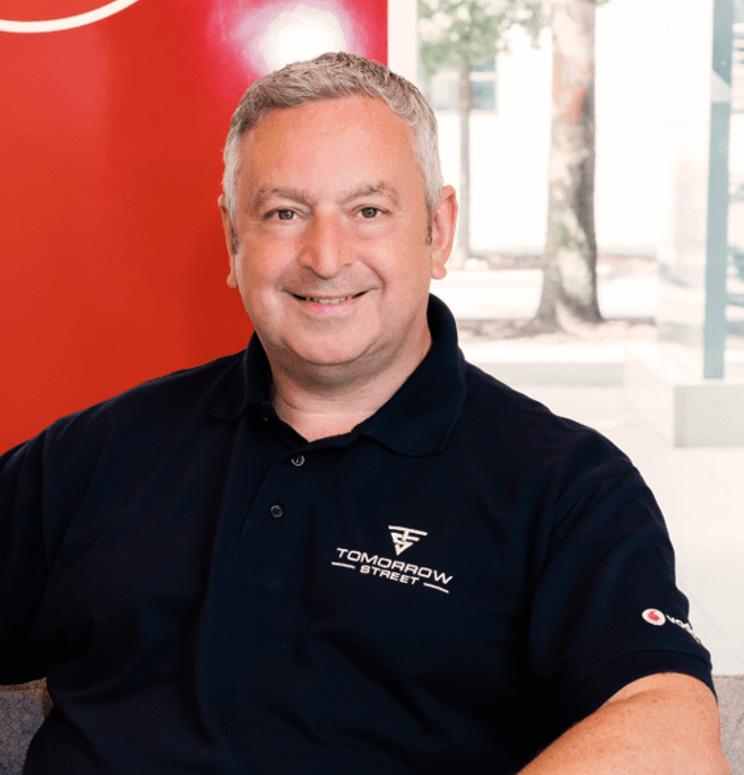
Vodafone
Overview: Wilson manages Vodafone’s procurement, overseeing technology sourcing and indirect spending. He integrates sustainability into procurement processes and ensures Vodafone’s supply chains are competitive and resilient, covering operations across 26 countries.

From technology giants like Google to consumer goods behemoths such as Unilever, the top CPOs from Fortune 500 companies are leading the charge, integrating advanced technologies and sustainable practices to build resilient, value-driven procurement functions. Here, we spotlight the top 10 CPOs who are not just optimizing supply chains but redefining the future of procurement with vision, agility, and an unwavering commitment to excellence.
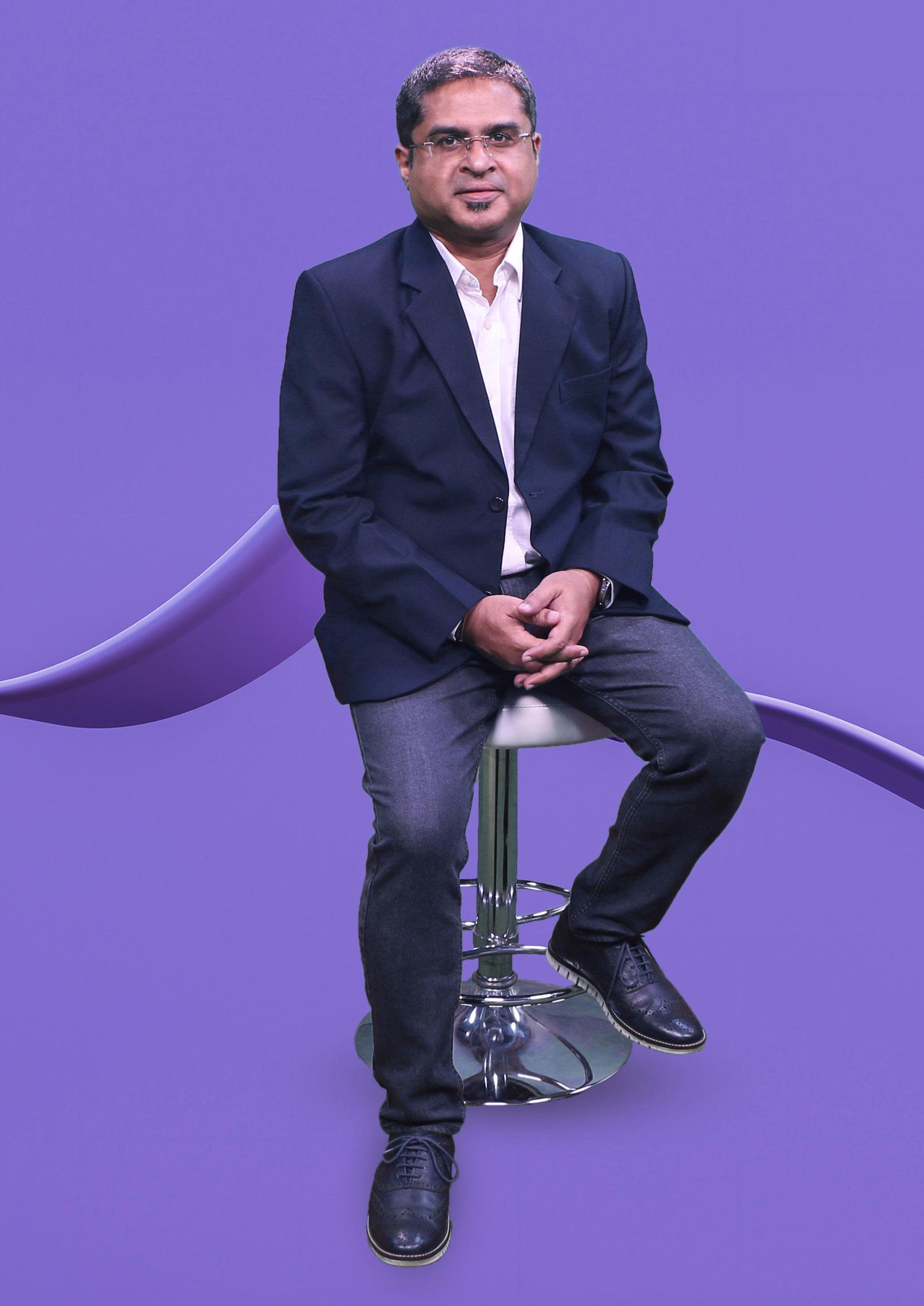


PROJECT
DIRECTED BY: JESS COLLINS
ARTICLE WRITTEN BY: LAURA WATLING
Bosch, a name synonymous with cutting-edge technology and innovation, has long been a global leader across industries such as mobility, consumer goods, industrial technology, and energy. But as digitalisation transforms the way businesses operate, Bosch has been quietly positioning itself as a vanguard of this new era through its Software and Digital Solutions (SDS) business unit. Under the leadership of Debasis Bisoi, CEO of SDS, Bosch is redefining how companies can utilise software, sensors, and digital solutions to not only survive but thrive in a highly competitive global landscape.
In this exclusive interview, Debasis Bisoi takes us behind the scenes of Bosch SDS’s ambitious plans and groundbreaking projects. From digitising entire value chains to enabling enterprises to adopt new digital models, SDS is Bosch’s key to unlocking the future. But its mission goes beyond creating products; it’s about redefining industries through smarter digital solutions that embed sustainability, data-driven intelligence, and cuttingedge technologies into the very fabric of businesses.
The Bosch Group is one of the world’s leading providers of technology and services, with a rich history spanning over 140 years. As of 2023, Bosch employed roughly 429,000 associates worldwide and generated sales of 91.6 billion euros. Its operations are divided into four business sectors: Mobility, Industrial Technology, Consumer Goods, and Energy and Building Technology.
Bisoi emphasises Bosch’s commitment to shaping universal trends such as automation, electrification, digitalization, and sustainability. Bosch’s expertise in sensor technology, software, and services allows it to offer cross-domain solutions that are "Invented for life." From its roots in engineering to its expansion into digital technologies, Bosch’s mission is to improve the quality of life while conserving natural resources. But within this giant organisation, it is SDS that plays a crucial role in carrying Bosch’s vision forward into the digital age.
Bosch SDS is the arm of Bosch that focuses on delivering digital solutions to non-Bosch customers, including Fortune 500 companies and Global 2000 enterprises. SDS operates under Bosch Global Software Technologies (BGSW), which is Bosch’s largest software development centre outside of Germany, headquartered in Bangalore, India. While BGSW primarily serves Bosch’s internal needs, SDS focuses outward— on transforming external enterprises across industries through smarter digital strategies.

with companies to identify gaps, rethink strategies, and design solutions that address not only immediate needs but also future growth opportunities.
"The mission of SDS is simple," Bisoi explains. "We rethink digital conventions and create intelligent business models that embed sustainability into every aspect of the enterprise." This goes beyond just providing software or consultancy services. SDS adopts a holistic approach to digital transformation, working closely
Bosch SDS’s vision is encapsulated in its Smarter Digital philosophy—a mindset that aims to create intelligent, sustainable, and scalable digital solutions. Whether it’s creating new business models, optimising operational processes, or enabling faster time-to-market, SDS integrates a sustainability-first approach. In the words of Bisoi, "We are experts in software, sensors, and services. Our role is to help businesses across industries reimagine their present and future with smarter digital solutions."

Bosch SDS’s influence spans the globe. With a presence in regions such as North America, Europe, the UK, the Middle East, India, Southeast Asia, and Japan, SDS brings its expertise to some of the world’s most prominent markets. SDS’s market-facing portfolio includes four key segments: Connected Products, Connected Engineering, Connected Enterprise, and Connected Solutions.
Connected Products focus on enabling digitalization and connectivity within physical products. This involves everything from sensorising products to creating digital twins that mirror the physical
world in real-time, providing insights that were previously unattainable. For instance, SDS’s work with a large gas processing unit in Latin America involved digitising the entire gas value chain— from production to transportation and consumption. The implementation of sensors and cloud-based data analytics has transformed how the company manages its operations, resulting in significant cost savings and operational efficiencies.
Connected Engineering leverages Bosch’s rich engineering heritage to provide end-to-end engineering solutions for enterprises. SDS works closely with manufacturing companies, helping them
modernise their production processes, improve product design, and reduce timeto-market. This is particularly important for industries like automotive, where innovation cycles are becoming shorter and the need for smarter, more connected vehicles is growing.
transforming internal enterprise processes through digital technologies. This includes everything from automating workflows and digitising supply chains to enhancing customer experience through AI and machine learning. SDS’s work with healthcare companies, particularly in the MedTech space, is a prime example. By developing digital solutions for devices like those used in sleep apnea treatment, SDS is not only driving innovation but also improving patient care.
Connected Solutions is about integrating multiple digital solutions into a cohesive ecosystem that spans across different sectors. For example, SDS’s work with a waste management company in the Gulf region involved creating a circular economy model. By integrating waste collection, energy production from waste, and real estate development, SDS enabled the company to streamline its operations and create new revenue streams. The use of AI in managing these processes has further enhanced their efficiency and sustainability.
Digital transformation isn’t just about adopting new technologies—it’s about fundamentally changing how businesses operate. Bosch SDS is at the forefront of this revolution, running large-scale transformation programs for enterprises across multiple sectors.
One of SDS’s most ambitious transformation projects involved a large Indian conglomerate with interests in airports, transportation, and energy. This client was struggling to transform its legacy systems to meet the needs
of a rapidly changing market. By implementing a hybrid communication network and end-to-end program management, SDS helped the company modernise its infrastructure, enabling it to better serve the public through improved energy distribution and operational efficiency. The result? The company was able to generate revenue streams much faster than its competition, securing its position as a leader in the industry.
In the energy and utilities sector, SDS’s work extends to projects funded by the World Bank. In India, SDS helped tackle the problem of transmission and distribution losses in the country’s electricity grid. By digitising energy metres and introducing a prepaid system, SDS reduced the need for field personnel and improved customer payment processes. This project, which involved the use of cloud-based networks, has transformed how utilities operate in multiple Indian states, creating a more efficient and scalable system.
In the semiconductor industry, SDS partnered with an American Fortune 500 company to "SaaSify" their workload automation platform. This transformation allowed the company to transition from a traditional software model to a scalable cloud-based SaaS platform. SDS not only provided a roadmap for this transformation but also helped the company complete the development process within four months. The SaaS platform is now live globally, offering a more flexible and competitive solution for end customers.
The digital landscape is constantly evolving, and companies that fail to adapt risk being left behind. Bosch SDS has made agility a core part of its strategy, ensuring that it can quickly pivot to meet the changing needs of its customers.
"As technologists, we have to stay ahead of the curve," Bisoi says. "In the past, technology cycles were six or seven years
Is established as the global powerhouse of technology. Expert in software, sensors, and services, we are the tech partners of organizations from leading startups to legacy industry giants for delivering new-age digitalization.
We help enterprises reimagine the present and the future of businesses with #SmarterDigital.

Everyone’s in a race to do more with digital. But such initiatives seldom yield the results that were envisioned. Not limiting to strategy or execution, we take a step back and look at the gaps in the bigger picture.

We rethink conventions, traditions, norms, and digital ‘as usual’.
The result is Smarter Digital. With it, we embed a sustainability mindset, create intelligent business models, and a data-led culture across the value chain.
Bosch Software and Digital Solutions
The promise of #SmarterDigital
We help enterprises achieve sustained business success with our flexible, detail-oriented, and resilient approach to digitalization.

long. Today, they are as short as one or two years. We have to help our customers spot emerging technologies early and ride those waves effectively."
SDS’s approach to technology adoption involves a three-step process: first, encourage clients to be early adopters of new technologies; second, run small pilot programs to test the viability of those technologies; and third, once the technology is proven, scale it up through large transformational programs. This approach allows SDS to stay at the cutting edge of innovation while minimising risk for its clients.
For example, in the AI and generative AI space, SDS is helping enterprises explore how these technologies can improve efficiency and create new business models. From automating repetitive tasks to generating insights from massive datasets, AI is transforming industries from manufacturing to healthcare. SDS’s ability to quickly integrate AI into its clients’ operations has enabled companies to unlock new opportunities and stay competitive in an increasingly digital world.
Another emerging area where SDS is making waves is the Internet of Things (IoT). IoT devices are transforming how businesses operate by connecting physical assets to digital systems, enabling real-time monitoring and decisionmaking. For example, SDS is working with automotive companies to integrate IoT into their vehicles, enabling smarter, more connected cars that provide real-time data on everything from fuel efficiency to predictive maintenance. This not only improves the customer experience but also creates new revenue streams through data-driven services.
Bosch SDS has an impressive track record of delivering transformational results for its clients across multiple sectors. Some of its most notable success stories include:


A Leading Gas Processing Unit in Latin America: SDS digitised the entire value chain of one of the largest gas processing units in the region. By sensorising the value chain and implementing cloudbased analytics, SDS created a digital twin of the company’s operations, enabling real-time monitoring and optimization. This transformation resulted in significant cost savings and operational improvements.
A Waste Management and Green Energy Company in the Gulf: SDS partnered with a sustainability-focused company in the Middle East to digitise its waste management operations and develop a platform for producing green energy from waste. SDS’s AI-powered platform also helps the company manage its real estate developments, including data centres that require high levels of electricity and cooling. This project has not only streamlined the company’s operations but also positioned it as a leader in the region’s sustainability efforts.
An Indian Energy and Utility Company: SDS worked with an Indian conglomerate to digitise energy distribution through smart metres and cloud-based management systems. This project, funded by the World Bank, has improved efficiency across multiple states in India, reducing transmission and distribution losses and enhancing customer satisfaction through a prepaid energy model.
These examples illustrate the breadth of SDS’s capabilities and its ability to drive significant business transformation across industries. By combining its expertise in software, sensors, and digital technologies, SDS is helping companies achieve their goals while also addressing broader societal challenges like sustainability and energy efficiency.
As the digital landscape continues to evolve, Bosch SDS is well-positioned to
remain at the forefront of innovation. Bisoi emphasises that technology is no longer just a tool for solving operational problems—it’s now at the heart of creating new business models and value propositions.
"We are no longer just IT providers; we are consultants and partners who help our clients change the level playing field," Bisoi says. "Our role is to not only help businesses adopt new technologies but to guide them in using those technologies to create competitive advantages and longterm growth."
Looking ahead, SDS aims to expand its work in areas like AI, digital twins, and sustainability, ensuring that it remains a key partner for companies looking to innovate. SDS’s work in creating industry-specific platforms and solutions, particularly in sectors like energy, healthcare, and manufacturing, will continue to drive its growth and relevance in the global market.
As businesses around the world navigate the complexities of digital transformation, Bosch SDS stands as a beacon of innovation and agility. Its ability to adapt to market changes, combined with its deep expertise in digital technologies, makes it an invaluable partner for companies seeking to thrive in the digital age.
In conclusion, Bosch SDS is not just a technology provider—it’s a catalyst for business transformation. Whether it’s helping companies digitise their operations, adopt new technologies, or create sustainable business models, SDS is at the forefront of shaping the future of global enterprises. And as Bisoi aptly puts it, "We are in the midst of a very exciting time, where technology is no longer a back-office function—it’s at the core of everything we do."
With its commitment to innovation, sustainability, and smarter digital solutions, Bosch SDS is not just preparing for the future—it’s building it.
www.bosch-sds.com



Built on a core of proprietary technologies and e-money apps, Uphold embraces a future where people and businesses around the world have access to safe, transparent, fair, and affordable financial services.
Celebrating 10 years in business in 2024, Uphold is considered the first in its sphere to truly offer a patented Anything-toAnything trading experience, allowing customers to trade directly between asset classes.
Voted best Crypto Exchange UK by Forbes Advisor July 2024, Uphold is a multi-asset digital money platform offering financial services globally.


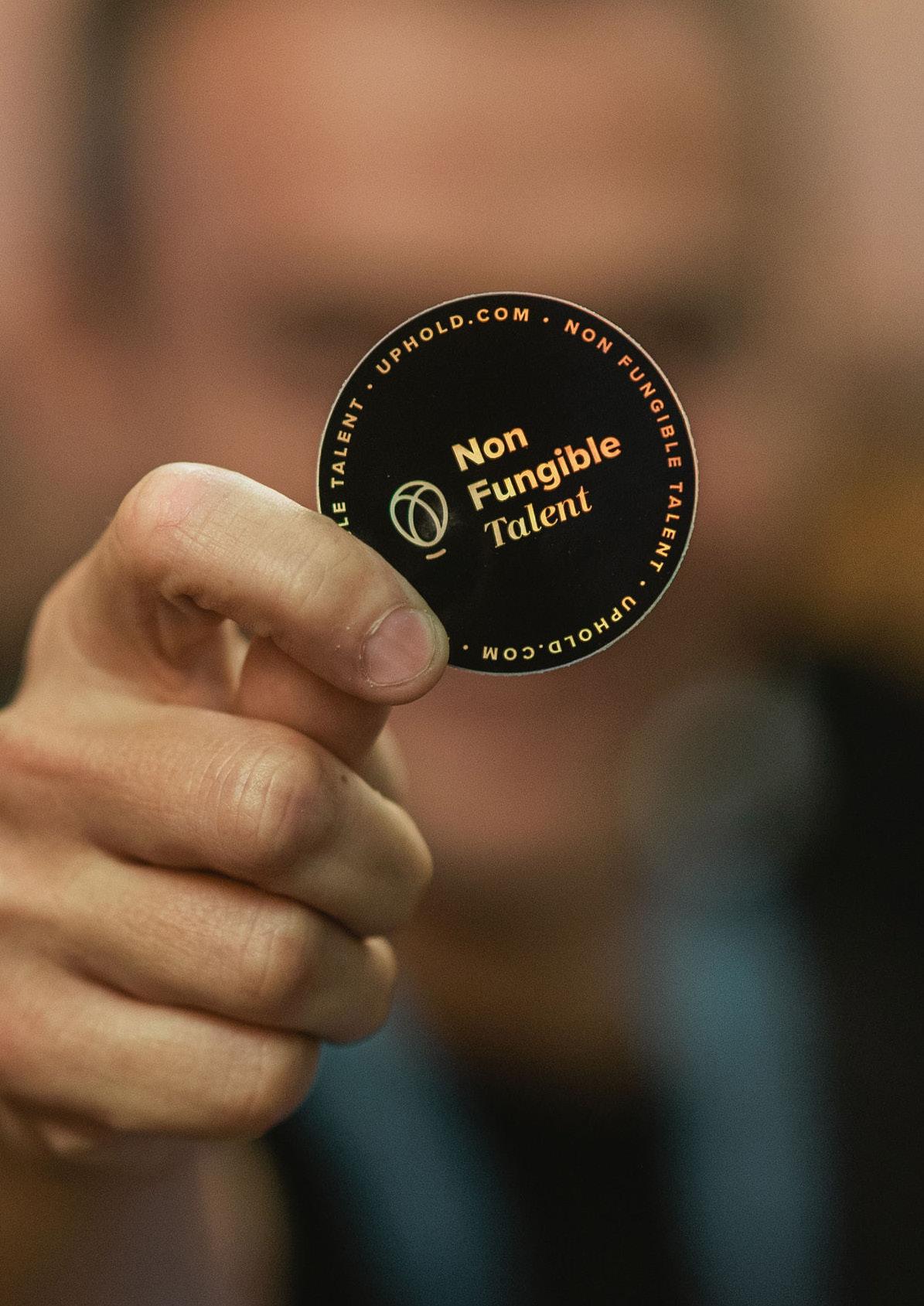
DIRECTED BY:
Harness the expertise of 100,000+ security researchers to detect vulnerabilities as soon as they surface, avoiding the costly damage of breaches.
Uphold: Leading the way in proactive cybersecurity with Intigriti
Cyber threats are evolving rapidly, becoming more sophisticated and frequent by the minute. Additionally, the rise of hybrid work and increased digital dependence have expanded the attack surface, making it easier for cybercriminals to exploit weaknesses. To stay ahead, organizations must continually adapt their security strategies.


Uphold is going beyond traditional security testing measures by leveraging the collective expertise of Intigriti’s 100,000+ ethical hackers. This approach has significantly enhanced the bank’s operational security, ensuring that vulnerabilities are identified and remediated before cybercriminals have the chance to exploit them.










SymmetriQ is delighted about its work with Uphold, whose commitment to advanced security technologies makes them stand out. As experts in the field of crypto cyber-security SymmetriQ shares with Uphold a strong dedication to superior cyber-security standards.
At SymmetriQ, we safeguard your digital assets using innovative, quantum-resistant technologies. Our solutions ensure secure networks, custody, wallets, entropy, and more.
We stand at the forefront of crypto and cyber security, where threats evolve daily. Our solutions are designed to protect today’s infrastructures with futureproof strategies that require little or no change on the client side.
Our expertise in crypto infrastructure security ensures that our clients are equipped with the most robust protections available, keeping them one step ahead in a rapidly changing cyber landscape.
Choose SymmetriQ for a partnership that values resilience and proven innovation. Our services provide comprehensive security solutions tailored to the unique needs of each client, reinforcing your defences against the most sophisticated cyber threats.
With SymmetriQ, you secure not just your present operations, but also your future viability in the digital economy. Trust us to elevate your security to new heights, ensuring your assets are protected with the highest standards of excellence.
Amidst this challenging landscape, Uphold stands out by taking a proactive approach to finding and surfacing vulnerabilities in its digital systems. Through its bug bounty program, launched on Intigriti’s platform, the digital bank is demonstrating a forwardthinking strategy that sets a standard for others to follow.
The partnership has strengthened Uphold’s security posture and established a robust framework for addressing vulnerabilities that might otherwise go undetected. Furthermore, Intigriti’s platform has been instrumental in uncovering hidden weaknesses, and by integrating Intigriti’s services into its continuous risk reduction strategy, Uphold is not just adapting—it’s leading the way in proactive cybersecurity.
www.intigriti.com


“Our core mission as a web3 financial platform is to provide infrastructure for anybody building on the blockchain,” explained Chris Adjei-Ampofo, Chief Information Officer (CIO) of Uphold, “This includes licensing, the control framework, and access to a wide range of digital assets”.
With over 20 years of experience in the financial sector, including the development and sale of his own software company, Knowledgewire, Chris is at the forefront of fintech.
Since joining the firm, Chris has played a pivotal role in the cultural change of information security and data privacy at Uphold.
“Implementing security and fraud controls is only part of the toolset needed to company cyber risks. People are always the weakest link and changing the company culture in which everyone embraces our information security
obligations without it being burdensome is worth its weight in gold,” he highlighted.
Chris spoke with Business Enquirer about the challenges faced by CIOs in the fintech sector, and where financial institutions should be investing their focus in the ever expanding realm of emerging technologies.
Over the last 10 years, the fintech sector has evolved from a niche industry trend into a transformative force in the global financial landscape with just under 30,000 fintech businesses across the globe - and growing.
But what does this evolving sector look like in the coming ten years?
“CIO’s in this industry face several significant challenges over the next decade,” shared Chris, “these challenges can be broadly categorised into four areas:
technological advancements; regulatory compliance; cybersecurity; and talent management”.
The rapid pace of innovation with advancements in technologies like blockchain, artificial intelligence (AI), machine learning (ML), and quantum computing all pose a risk to businesses if they are not prepared to implement these quickly and correctly.
“Many financial institutions still rely on legacy systems. Integrating new technologies with these outdated systems without disrupting services is a complex task” said Chris. “CIOs must ensure their organisations stay ahead by continually adopting and integrating these technologies,”.
Meanwhile, the regulatory landscape for fintech is continuously changing, and it is CIOs responsibility to ensure that their systems and processes comply with new and existing regulations such as data privacy laws (for example GDPR, and CCPA) and financial regulations (such as the EU’s Digital Operational Resilience Act (DORA), FCA and PRA Operation Resilience policy, PSD2, and MiFID II).
While businesses can control regulatory compliance in-house, particular attention must also be paid by CIO’s to ensure the protection against increased cyber threats, with cyber criminals taking advantage of evolving technology.
“As fintech becomes more prevalent, the sector becomes a more attractive target for cybercriminals. CIOs must invest in advanced cybersecurity measures to protect sensitive financial data and maintain customer trust,” added Chris.
“Preparation is key” says Chris, with some businesses being too reactive, allowing leaky holes in the proverbial bucket.
“Preventing data breaches and financial fraud is critical. This requires robust security protocols, continuous monitoring, and rapid response capabilities,” he said, “its also key that businesses ensure the
privacy of customer data in compliance with stringent regulations. This requires sophisticated data management and security strategies but is crucial to building customer confidence”.
Finally, a sector which is introducing everevolving technology, Chris highlighted the high demand for skilled professionals in areas such as AI, cybersecurity, and blockchain, for which many businesses are having to back-fill.
“CIOs need to take steps to attract, retain, and continuously up-skill their workforce to keep pace with technological advancements,” Chris said, “Additionally, Implementing new technologies often requires significant cultural and organisational change. CIOs must foster an innovation-friendly culture and manage resistance to change within their organisations”.
Along with this culture shift, the desire from employees for hybrid working, accelerated by the COVID-19 pandemic, presents challenges in maintaining productivity, collaboration, and cybersecurity.
One of the biggest challenges faced by businesses in the fintech sphere is securing customer trust.
Guided by Chris, Uphold has implemented its Zero Trust security model across the organisation to enhance overall security and minimise internal and external threats.
Within this model, Uphold’s governance controls ensure access to information is granted on need-to-know basis after infosec approval, and segregation of duties means access to critical assets and customer data is only available for the purpose of the roles for a time limited period.
“We use a zero trust browser isolation with security policies for third party contractors, and only company issued devices are


Chris Adjei-Ampofo, Chief Information Officer (CIO) of Uphold







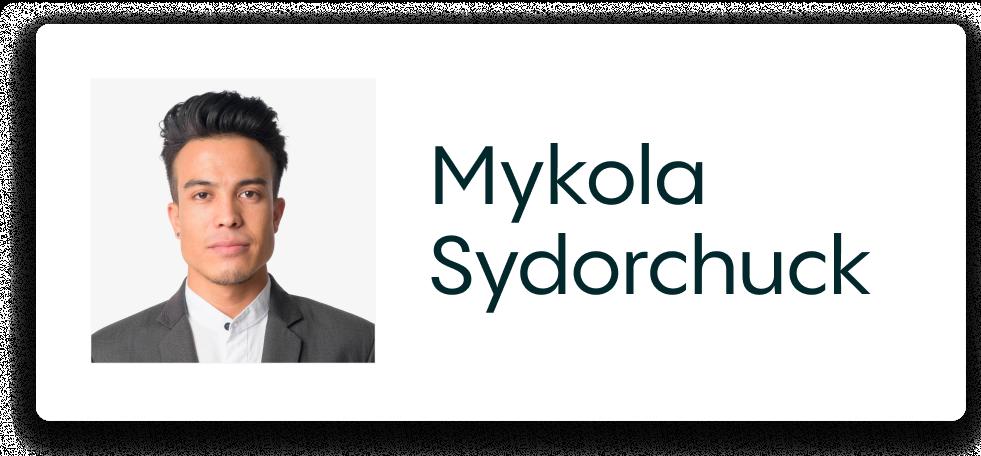


Veriff is the preferred identity verification partner for the world’s biggest and best digital companies, including pioneers in fintech, crypto, gaming and the mobility sectors. We provide advanced technology, deep insights and expertise from our foundation in digital-first Estonia and honed in leading the digital identity revolution.
The partner of choice for businesses who need to rapidly and effortlessly verify online users from anywhere in the world, Veriff delivers the widest possible identity document coverage. By supporting government-issued IDs from more
than 230 countries and territories and with our intelligent decision engine which analyzes thousands of technological and behavioral variables Veriff enables trust from the first hello.
With 400 people in the United States, United Kingdom, Spain, and Estonia, as well as robust backing and funding from investors including Accel, Alkeon, IVP, Tiger Capital, and Y Combinator, we’re dedicated to helping businesses and individuals build a safer and more secure world.




permitted to access our infrastructure,” explained Chris.
Additionally, Uphold implements regular audits, continuously monitors for suspicious activity, and runs annual security penetration tests to validate its external preventative controls. This aims to protect the platform's infrastructure and software from security vulnerabilities and hackers.
To further build customer trust, the multiasset digital money platform is always 100%+ reserved, and is the only financial platform to publish our assets and liabilities in real-time.
“At least 90% of our customer assets are stored in cold storage protected from external threats,” shared Chris”
Finally, Uphold is SOC 2 Type 2, ISO 27001, PCI DSS Level 1 compliant to certify the robustness of our security, fraud, and payment controls.
“Ultimately, our customers want to feel confident that their money is safe - we strive to continually validate that confidence,” he said.
Supporting Uphold's sustainable growth and ongoing evolution, industry partnerships have played a pivotal role in shaping the platform's approach to cybersecurity and digital transformation.
Chris emphasised the importance of collaborating with specific providers in areas such as Know Your Customer (KYC), threat and vulnerability detection, financial crime prevention, regulatory compliance, fraud management, and the future-proofing of cryptographic measures to protect critical assets and payment processes.
Uphold’s ecosystem includes several key partners essential for safeguarding its assets and customers. Among these, Veriff, Intigriti, Unit21, and SymmetriQ stand out.
“First and foremost, Veriff, a leading KYC provider, ensures that Uphold complies with regulatory anti-money laundering (AML) requirements and actively prevents fraud,” shared Chris. Veriff's robust verification processes authenticate user identities, minimising the risk of identity theft and fraud while streamlining customer onboarding. This KYC provider has been instrumental in Uphold's efforts to combat prevalent customer fraud, particularly Account Takeover (ATO) and Pig Butchering schemes.
The latter involves sophisticated social engineering tactics to manipulate victims into trusting the fraudster before ultimately defrauding them.
By integrating Veriff’s biometric authentication and fraud risk scoring with Uphold's fraud detection tools, the platform has effectively implemented preventative measures to protect its customers, achieving a remarkable 80% reduction in total fraud within a year.
“Not only is Veriff efficient and secure, but it also enhances the user experience while maintaining essential security standards, which is crucial for showcasing the value our platform offers to customers,” Chris added.
Unit21 plays a critical role in Uphold's global compliance team, streamlining operations related to financial crime, regulatory compliance, and fraud detection. As a nocode, AI-driven platform, Unit21 empowers the team to create and test custom rules, risk models, and workflows with ease.
Utilising AI, Unit21 prioritises alerts and surfaces pertinent information for investigations, thereby increasing efficiency and programme health. Its rules engine, risk rating, and case management features enable Uphold to effectively prevent, detect, investigate, and report suspicious activities and fraudulent transactions.
Additionally, Uphold's partnership with Intigriti, a trusted leader in crowdsourced security, is vital for continuously detecting and mitigating evolving threats and vulnerabilities in the industry.

While many companies still rely on annual penetration tests to identify security weaknesses, Chris points out that such time-limited assessments can offer a false sense of security. Given the rapid emergence of new threats and vulnerabilities, it is essential to engage a broad community of ethical hackers and researchers dedicated to continuously identifying potential risks within Uphold’s ecosystem.
“By collaborating with Intigriti’s global community of security researchers, we leverage their expertise to enhance our platform's security posture, reinforcing our commitment to safeguarding our customers' assets and maintaining their trust,” said Chris.
Lastly, advancements in quantum computing and AI present both benefits and risks. The computational power of quantum computers far exceeds that of classical computers, posing a direct threat to current encryption methods like RSA and ECC, which are foundational to digital security.
These algorithms could be easily compromised by quantum technology, undermining the integrity and trustworthiness of blockchain systems. To address this challenge, Uphold has partnered with SymmetriQ, a specialist crypto cybersecurity firm co-founded by Dr. Barry Childe, a leading expert in quantumresilient networks.
This partnership enables Uphold to assess the threats posed by quantum computers, evaluate the feasibility and costs of implementing quantum-resistant algorithms, quantum key distribution (QKD), and post-quantum blockchain solutions. Together, they have devised a strategic plan for integrating quantum encryption into Uphold's existing security infrastructure, thereby safeguarding critical assets against quantum computing threats.
While Uphold recognises the immense value of its partnerships, it is equally committed to optimising its clients' platforms. Recently, Uphold launched its latest innovation, Topper—a user-friendly fiat on-ramp that boasts high approval

rates and serves as a simple-to-implement Web3 payment tool.
“Topper empowers crypto projects to seamlessly process a broader spectrum of customer payments,” explained Chris. “Furthermore, it supports a wider range of digital assets than our competitors, providing end consumers with more choices.”
As mentioned by Chris in his comment on challenges to CIOs, preparation is key. From his perspective there are several emerging technologies which he feels will significantly impact the fintech space in the coming years.
Chris believes AI and Machine Learning will continue to have purpose in its developing analytic credentials.
“As this technology evolves it will be able to analyse vastly more amounts of data to predict customer behaviour, credit risk, market trends, and enable more informed decision-making by fintechs,” Chris explained.
At Unit21, we recognize that the challenges in the fintech industry—rapid technological advancements, increasing regulatory demands, and evolving fraud threats—require a proactive, data-driven approach. Our Risk & AML Compliance platform empowers institutions to face these challenges head-on. With a flexible risk engine and an intuitive case manager, teams can harness real-time data insights without relying on heavy engineering support.
In 2023 alone, Unit21 processed over $2.77 trillion in transactions, thwarting more than $4.3 billion in fraud attempts. These achievements are a testament to our commitment to providing secure, efficient solutions for the financial services industry.
We stand ready to support your organization in safeguarding against fraud and ensuring regulatory compliance with minimal friction. As the fintech landscape continues to evolve, so too must your risk management strategies. Unit21 offers the infrastructure to stay ahead of threats, streamline workflows, and reduce the administrative burden on compliance teams.
Let us show you how Unit21 can transform your risk and compliance programs. Schedule a custom demo today and join the fight against financial crime with confidence and precision.

The timeline for quantum computers depends on several factors, including the development of largescale, fault-tolerant quantum computers and advancements in error-correction techniques. While quantum computers today are still in their early stages, experts predict that breaking RSA could happen within the next 10 to 30 years, depending on progress in quantum computing technology. The Research and Advisory firm Gartner makes the strategic planning assumption that by 2029 advances in quantum computing will make conventional asymmetric cryptography unsafe to use.
The National Institute of Standards and Technology (NIST) offers several key recommendations for preparing for the risks of quantum computing.
NIST recommends that organisations establish a clear plan for migrating to quantum-safe cryptographic systems, often known as Post-Quantum Cryptography (PQC). This strategy should:
• Prioritise the most critical and vulnerable systems.
• Define timelines and milestones for adopting quantum-safe algorithms.
Organisations are advised to begin by assessing their current cryptographic infrastructure to identify systems that rely on algorithms susceptible to quantum attacks, such as RSA and Elliptic Curve Cryptography (ECC).
Gartner predicts the following assumptions:
By 2029, advances in quantum computing will make conventional asymmetric cryptography unsafe to use.
By 2026, advances in quantum and cloud computing will require classic symmetric algorithms to support larger key sizes.
By 2025, post quantum encryption algorithms will see more use for their secondary properties like privacy enhanced computation, than they will as replacements for existing cryptography.
Organisations are encouraged to test quantumresistant algorithms and adopt “cryptographically agile” systems. This agility allows organisations to switch between different encryption methods as technology evolves, easing the transition to PQC.
By partnering with SymmetriQ and following the NIST recommendations, Uphold has developed mitigating strategies including implementation of quantum-resistant cryptography technology within our infrastructure to secure our critical assets against the threat of quantum computing and stay ahead in the rapidly evolving field of cybersecurity.

In addition, Chris foresees a positive impact from AI’s ability to automate repetitive and mundane tasks such as data entry, account reconciliation, and compliance checks, freeing up human resources for more strategic activities.
Meanwhile, CIO Chris believes that quantum computing will support enhanced data processing, which will significantly improve data analysis, risk management, and optimisation processes for fintech’s and beyond.
“Quantum computing poses both a threat and an opportunity for cyber security. It could break traditional encryption methods but also enable the development of more secure cryptographic techniques,” Chris highlighted.
As with all enhancing technology, Chris highlighted the current key areas where quantum computing poses a threat.
“‘Harvest Now, Decrypt Later’ indicates that adversaries can intercept and store encrypted data now, with the intention of decrypting it once quantum computers become powerful enough,” explained Chris.
The implications of this means that sensitive data, including personal information, financial records, and intellectual property, could be exposed in the future, leading to severe breaches and loss of confidentiality.
Secondly, quantum computers have the potential to break the cryptographic algorithms used by the blockchain for security. “This could undermine the integrity and trustworthiness of blockchain systems,” said Chris.
Ultimately, compromised blockchains could lead to financial fraud, loss of digital assets, and erosion of trust in decentralised systems.
“The threat of quantum computing to traditional encryption technologies and blockchain security is imminent and requires immediate action,” added Chris “By exploring quantumresistant encryption algorithms, quantum key distribution, and postquantum cryptographic solutions for blockchain, and engaging with expert solution providers, we can develop a robust security strategy to protect our organisation against future quantum threats”.
www.uphold.com

DUCAB PROJECT DIRECTED BY: MUNIM SIKDER

In a world of ever-increasing complexity, managing a supply chain has evolved into a dynamic and multifaceted role that stretches far beyond logistics. With new technologies reshaping industries and global events introducing unpredictable challenges, supply chain leaders must possess a blend of agility, foresight, and an intimate understanding of both people and technology. At the helm of this transformation is Sumantra Dasgupta, the Executive Director of Supply Chain at DUCAB, one of the Middle East’s leading energy solutions companies.
In a recent conversation, Dasgupta shared his thoughts on how digital transformation, Industry 4.0, and humancentered leadership are revolutionizing the way supply chains operate. From his experiences in global industries to his current role at DUCAB, Dasgupta paints a vivid picture of a supply chain landscape that is in the midst of unprecedented change. His insights offer a roadmap for other leaders who are navigating similar challenges in a rapidly shifting business environment.

Ducab is at the forefront of the energy solutions industry, playing a critical role in the distribution of electrical power. Dasgupta describes the company as a key player in the energy transition movement, which is sweeping across industries globally as the world seeks alternatives to fossil fuels. Ducab’s two primary business units—Ducab Cables Business and Ducab Metals Business are uniquely positioned to capitalize on the growing demand for renewable energy infrastructure. From utilities to electric vehicles, data centers, and smart cities, Ducab is helping to lay the groundwork for a more sustainable future by integrating eco-friendly practices into its operations.
Through initiatives like reducing carbon emissions with their in-house Solar panels, incorporating recycled aluminium into their production and adopting energy-efficient manufacturing processes, Ducab ensures that its contribution to the energy transition is environmentally responsible.
Dasgupta joined Ducab a little over a year ago and oversees the group’s supply chain. His role encompasses planning, procurement, inventory, logistics, and more, giving him a comprehensive view of the company’s operations and strategic goals. For Dasgupta, this role represents the culmination of years of experience across industries that have seen their own revolutions—from automotive and oil & gas to now energy solutions.
Reflecting on his career, Dasgupta recalls his early days in the automotive industry in the United States, where he worked in hands-on roles on the shop floor. He spent years in process improvement, quality control, and other operational roles, which helped him develop a deep understanding of the intricacies of manufacturing. After earning his MBA, Dasgupta transitioned into supply chain management, where he found a new challenge in managing commercial aspects such as contracting, procurement, and outsourcing. These experiences provided him with a solid foundation to lead in industries undergoing rapid change, and he’s brought that knowledge into his role at Ducab.

Bhag digital is the provider of a key MES system utilized particularly in the Electrical Cabling industry. Our collaboration started over 3 years ago- wherein they were chosen by Ducab amongst several other comparable system providers.
One of the key considerations was the expertise of Bhag Digital within the Cabling industry which has some specificities in high-volume production that are somewhat unique and require a distinct IT set up for data measurement and collection. Over the last few years, there has been very close collaboration between Bhag Digital and Ducab- wherein a dedicated team is permanently on-seat in Ducab and working closely with our operators, engineers, finance and IT teams to sort out the design, implementation and in-production trouble-shooting during the implementation of this significant change in the organization.
It has been a lot of work and there have been several challenges, but so far the partnership of Bhag Digital and Ducab has been able to overcome them and we are on course for a 100% company-wide implementation across all our business units over the next year.”


As a key player in digital transformation, BHAG Digital, a Dubai-based company with 12 years of expertise in manufacturing digitalization, is leading the way for industrial innovation worldwide. Proudly headquartered in Dubai Internet City, our company is at the forefront of the UAE’s efforts to modernize industries and boost local technological solutions through the NextGenFDI program of the UAE Ministry of Economy.
In the Ducab Blade project, BHAG Digital served as the key implementation partner, helping Ducab integrate Industry 4.0 technologies such as AI, IoT, and big data analytics into their manufacturing processes. This transformation allowed Ducab to boost output by 21% without any capital investment in new production capacities, a testament to the efficiency gains made possible through digital transformation. Our partnership has significantly enhanced Ducab’s productivity and sustainability, in alignment with the UAE’s Net Zero by 2050 strategy.
At BHAG Digital, we recognize the challenges that both large enterprises and SMBs face in embarking on digital transformation. Big companies often hesitate due to the high initial costs, while SMBs may lack the resources to adopt advanced technologies. That’s why we’ve developed our plug-and-use solutions, designed to deliver AI-driven transformation with zero capital expenditure and fast time-to-value, measured in days rather than years.
– Our plug-and-play
and OEE solution offers real-time insights into manufacturing operations, helping businesses optimize productivity and profitability without complex setup. One of BEEDIGIT’s key advantages is its ability to work with any machine, including
legacy machines without digital interfaces, which are still widely used in real-world manufacturing environments. This flexibility makes it ideal for manufacturers looking to enhance their operations without the need for significant hardware upgrades. factory.online – This solution simplifies supply chain and operations management, enabling businesses to increase output, reduce inventory costs, and meet delivery schedules with ease. Designed with a user-friendly interface, factory.online ensures that even complex manufacturing processes are easy to manage.
Our solutions, BEEDIGIT and factory.online, are available globally as SaaS, offering a fast and cost-effective way to start digital transformation. With zero capital investment, businesses can rapidly implement these services in daily operations, gaining rapid insights and measurable results within days. This model allows companies of all sizes to optimize their operations, enhance productivity, and achieve growth without needing heavy infrastructure investments, making advanced technology accessible to a global audience.
At BHAG Digital, our deep experience in manufacturing operations management allows us to deliver digital transformation solutions that are both powerful and cost-effective. Whether for large enterprises or SMBs, our solutions empower businesses to embrace AI and digital technologies with minimal disruption and maximum efficiency. Through projects like Ducab Blade, we continue to demonstrate our ability to drive sustainable growth and operational excellence.
For more information, visit www.beedigit.com and www.factory.online
Wake AI-driven Industry 4.0 solutions accessible to factories of all sizes, from workshops to large manufacturing groups.
We are UAE company established in Dubai Internet City, our products are UAE products, team presented locally.
We are the part of NextGenFDI program of UAE Ministry of Economy Our solutions are based on 12 years of expertise and deep knowledge of manufacturing industry.

Customized solutions
We offer customized solutions that are tailored to the specific needs and goals of each customer.
BHAG Digital has a track record of success in helping businesses to achieve their digital transformation goals.
Expert team
Our team of experts experienced in the latest digital technologies and strategies.
Ongoing support
We offer ongoing support to ensure that your digital transformation is successful and sustainable.
What strikes Dasgupta most about today’s business environment is the sheer volatility. Globalization, geopolitical tensions, and technological disruption have created a world where the rules can change almost overnight. "You have to be prepared for instability and ambiguity," Dasgupta emphasizes, noting that even in relatively stable industries, companies must have contingency plans in place to adapt to unforeseen circumstances. Whether it’s a global supply chain disruption, a new regulatory requirement, or the emergence of a game-changing technology, leaders must be nimble enough to pivot when necessary. This agility, he explains, is a key characteristic of successful supply chain leadership.
But agility alone isn’t enough. Dasgupta is quick to point out that in times of rapid change, empathy becomes an essential skill for leaders. “You can’t just charge ahead and expect everyone to follow,” he explains. In his experience, it’s critical to engage and carry people along on the journey, ensuring that they understand not just what is happening, but why. He draws on his own background, having worked his way up from the shop floor, to emphasize the importance of understanding the perspectives of all employees, from frontline workers to executives. “You need emotional intelligence to navigate the complexities of today’s supply chains,” he says, adding that while it may be tempting to rush into digital transformation, a leader who doesn’t account for the human element will ultimately struggle to implement lasting change.
At Ducab, digital transformation has been a top priority, particularly as the company looks to remain competitive in the fast-changing energy solutions sector. Dasgupta speaks passionately about the promise of Industry 4.0—the new wave of automation and data exchange in manufacturing that includes the Internet of Things (IoT), artificial intelligence (AI), and smart systems. Ducab has made significant strides in this area, particularly in its cable manufacturing facilities, where approximately 70% of operations have


been digitized. Machines are equipped with sensors that track key metrics such as energy consumption, line speed, and operational efficiency. This data is then fed into a central system that integrates with SAP, providing real-time insights into the performance of each machine and process.
Rather than replacing workers, Ducab’s digital initiatives are designed to reposition employees into more strategic roles, where their experience and knowledge can be used to analyze data and optimize processes. “It’s not about replacing people, it’s about empowering them,” he says. He points out that operators who used to manually control machines are now becoming data analysts, using the information generated by the machines to make more informed decisions. This shift requires a cultural change within the organization, but Dasgupta is confident that the longterm benefits outweigh the short-term disruptions.
Another major challenge in the digital transformation process is the sheer volume of data that modern manufacturing systems produce. Ducab’s sensors generate massive amounts of information, far more than any one individual could reasonably analyze. Dasgupta explains that while the company has made great strides in automating data collection, the next step is to harness the power of AI to sift through the data and extract meaningful insights. “There’s too much data for humans to process on their own,” he says, “which is why we’re looking at AI to help us make sense of it all.” This is an area where Dasgupta sees enormous potential for growth, as AI-driven analytics - such as Ducab’s factory of the future project, Blade, optimizes everything from machine maintenance to energy efficiency.
As Ducab continues to evolve, Dasgupta is focused on two main objectives for the company’s supply chain: building resilience and reducing operational costs. Resilience has become a buzzword in
supply chain management in recent years, especially in light of the disruptions caused by the COVID-19 pandemic and other global events. For Dasgupta, resilience means ensuring that Ducab has multiple options for everything, from suppliers to logistics providers, so that the company is never overly reliant on any single source. This diversification strategy, he explains, is crucial for mitigating risk in an unpredictable world.
Reducing operational costs, or OPEX, is another key focus area for Dasgupta. While cost-cutting may not be the most glamorous aspect of supply chain management, it is essential for maintaining competitiveness in a global market. At Ducab, this means leveraging technology to improve efficiency at every stage of the supply chain. Industry 4.0 tools, such as automated manufacturing systems and AI-driven analytics, are helping the company reduce waste, optimize resource use, and streamline processes.
Looking ahead, Dasgupta sees even more opportunities for Ducab to innovate and grow. The company’s digital transformation is far from complete, and there are still many areas where new technologies can be applied to further improve efficiency and sustainability. One area of particular interest is the use of AI to automate decision-making processes. While Ducab has made progress in automating data collection and analysis, many decisions are still made manually by employees who interpret the data. Dasgupta envisions a future where AI systems can make these decisions autonomously, freeing up employees to focus on higher-level strategic tasks.
Despite the increasing reliance on technology, Dasgupta remains committed to the human element of supply chain management. His years of experience working on the shop floor have given him a unique perspective on how technology can impact frontline workers He understands that the success of digital transformation is in making life easier for the people who operate the


system and not just improving efficiency. “Technology should enhance human capability, not replace it,” he says. This philosophy underpins Ducab’s approach to digital transformation, where the goal is to empower employees to take on more strategic roles and contribute to the company’s long-term success.
Dasgupta is optimistic about the future of supply chain management. The industry is undergoing a fundamental transformation, driven by new technologies and the need for greater resilience in the face of global uncertainty. For Dasgupta, the key to success lies in striking the right balance between technology and people. By leveraging the power of digital tools while maintaining a strong focus on human-centered leadership, he believes that Ducab is wellpositioned to thrive in the years to come.
In a world where supply chains are becoming increasingly complex and interconnected, leaders like Sumantra Dasgupta are showing the way forward. He believes that technology and people work hand-in-hand to create a more efficient, resilient, and sustainable future.
www.ducab.com
Business Enquirer’s conversation with Bonaire International Airport (BIA) led to the discovery of the perfect pub quiz question:
Q. Why is Bonaire’s International Airport called Flamingo Airport?
A. Because the island boasts more pink-feathered inhabitants than people!
In fact, the island is a critical habitat for various bird species which are often spotted in the wild, and is known for its unique ecosystems, including mangroves and salt flats.
What appears to be a convivial fact about flamingos is actually a fundamental to the airport’s plans for the future - ensuring that Bonaire’s culture, authenticity, and originality is retained, over the possibility of unlocking mass tourism.
The island of Bonaire is often considered the ‘hidden treasure’ of the ABC islands - Aruba, Bonaire, and Curaçao. A population of just over 24,000 (January 2023), the island is a special municipality of the Netherlands, forming part of the

BONAIRE INTERNATIONAL AIRPORT
PROJECT
DIRECTED BY: GARY SMITH
ARTICLE WRITTEN BY: LAURA WATLING

Founded in 1985 in Curaçao, Curoil has evolved from a local fuel distributor into a leading regional supplier of energy products and services, with a strong presence in the Southern Caribbean, particularly on the islands of Aruba, Bonaire, and Curaçao (the ABC Islands). Over the past 40 years, Curoil has earned a reputation as a reliable energy supplier, consistently upholding the high standards that define our operations.
As the global energy landscape shifts towards cleaner fuels, Curoil is actively investing in research on alternative energy solutions. Our commitment to sustainability drives our efforts to be recognized as the preferred choice among top-rated Caribbean energy suppliers.
Curoil’s operations extend across the ABC Islands, where we provide services through our subsidiary companies: Curgas, Curoil Gas Stations, Curoil Bonaire, and Curoil Aruba. By continuously fueling the Caribbean with high-quality products, we strive to create sustainable value for our stakeholders and make a positive impact in the communities we serve.


Founded in 1865, Penha is a family-owned company that has proudly upheld its values of authenticity and genuineness for over 150 years. With a focus on staying ahead of beauty market trends, Penha continues to thrive as a leader in the industry. Its flagship store in Curacao, housed in a building constructed in 1708, stands as an iconic symbol of the company’s heritage. This majestic structure remains the most photographed on the “Handelskade” and is part of the UNESCO World Heritage List, celebrating Curacao’s rich history.
In 2018, Penha expanded its presence by taking over its store at Bonaire Airport. Since then, we have continued to grow alongside the airport’s development. To further enhance the shopping experience, the Penha Bonaire store underwent a complete
renovation in 2024. While the airport location currently offers accessories, electronics, and fragrances, Penha is excited to introduce new categories, such as skincare and cosmetics, as part of its ongoing commitment to providing travelers with a diverse and high-quality range of products.




Dutch Caribbean (Aruba, Bonaire, Curaçao, Sint Maarten, Sint Eustatius, and Saba).
Like many islands in the Caribbean, tourism is the largest beneficiary to the island’s economy, with Bonaire particularly captivating the international diving community. The island and its islet, Klein Bonaire, offers 89 named dive sites, with divers being able to take in more than 350 fish species and 57 species of soft and stony coral. That’s why it’s often called the shore diving capital of the world.
Established in 1979, the Bonaire National Marine Park encompasses the entire coastline and surrounding waters, aiming to protect the island’s marine biodiversity and promote sustainable use of its resources.
Besides having plentiful and diverse nature, Bonaire has a rich history, with its culture developing from Africa, Netherlands, Spain, Portugal and England, giving it a unique cuisine and language (Papiamentu). Or, as they say on Bonaire: “It’s in our Nature!”

Meanwhile, you won’t find any tall buildings on the island which is known for its low-rise architecture. A law preventing the construction of highrise buildings helps Bonaire to maintain its continued efforts to retain the island’s natural beauty and charm.
Supporting the island’s push on ecotourism, many hotels and resorts on Bonaire are committed to sustainability, utilising solar energy, water conservation, and waste reduction.
With tourism being key to the island, which is found 80 km off of the coast of Venezuela, BIA recognises the importance it holds within the community.
“The airport is the gateway of Bonaire, connecting our island with the world, and the pillar of the island’s sustainable tourism,” explained CEO Maarten van der Scheer,. He was joined in speaking to Business Enquirer by COO and Bonairian, Giordano Molina.

The islands relationship with the Netherlands helped to bolster the airport’s stability throughout the COVID pandemic, with flights between the Netherlands and Bonaire able to re-open quickly. Now, the airport has seen a 20% increase in traffic since pre-pandemic levels.
And, whilst BIA recognises the importance of growth to a sustainable business, it is not something it actively pursues.
“We don’t strive for growth, but aim to facilitate the development of the island’s and its community,” shared Maarten, “with our partners we look to encourage quality tourism over quantity”.
To bolster the future of the island’s valuable ecosystem, BIA is working alongside the Dutch government and the Dutch Caribbean Cooperation of Airports (DCAA) to become a front runner in e-flying.
“Whilst we facilitate international travel, we also support our residents to travel between the local islands,” explained
Giordano. “Offering e-flight will enable us to lower the cost of those trips, as well as become a premier example sustainable flying”, added Maarten
BIA is creating the foundation and facilities in order for its airlines to be able to offer this service with small planes within a matter of a few years.
Supporting the airport’s plans to facilitate e-flight is its plans for an on-site solar park, which is currently under tender.
“We are aiming to launch the solar park in phases, and the energy generated can be used to power both public and rental cars, handling equipment, as well as electric aircraft,” said Maarten, “alongside the benefits this will have for the sustainability footprint of the airport, it will hopefully be also of support for the island’s push on eco-tourism”.
Recently, BIA has made improvements to its facilities to enhance its capacity and customer experience, ensuring travellers experience the unique Bonairian spirit at every touch point.






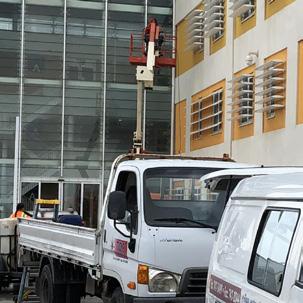

Top Professional Cleaning is a trusted, established company with nearly 20 years of experience, serving hospitality, institutional, and industrial clients with a focus on quality and customer satisfaction.
“Service Description” Janitorial Cleaning (school, Offices, hotels, banks), Clorox 360 disinfecting system, hi pressure wash cleaning, floor restoration, gas station cleaning, window cleaning, construction clean-up, Kitchen and exhaust hood cleaning,
Phone CW; +59997473499/ CN Bonaire; +5997703003 Website/ FB; Top professional Cleaning NV, email; topprofcleaning@gmail.com

Restaurant and bar at the airport of Bonaire
Outside Bar/Restaurant
and
We have three locations within the airport



Welcome to Brass Boer Bonaire, a seaside gem at Delfins Beach Resort. Founded by the worldrenowned culinary couple Jonnie & Thérèse Boer this restaurant blends refined dining with a laid-back coastal atmosphere. Whether you’re savoring a carefully curated dish from the chef’s menu or enjoying an à la carte option paired with a signature wine or cocktail, each moment is crafted to offer an extraordinary dining experience amidst breathtaking sunsets.
During the daytime, Brass Boer invites you to unwind in a coastal paradise where culinary excellence and beachside relaxation come together. Take a moment to relax in the sun and enjoy the beautiful turquoise waters, soak up the sun from one of the luxurious cabanas, or enjoy a culinary lunch at the restaurant.
As the sun sets, Brass Boer transforms into an elegant dining destination. Enjoy a fine dining experience with a breathtaking view and a truly stunning sunset.
Brass Boer Bonaire offers a relaxed, yet refined dining experience focused on fresh flavors and creativity. Indulge in a 6-course menu celebrating bold combinations and De Librije classics infused with Caribbean influences, expertly paired with exquisite wines to elevate each course. The chefs continuously innovate, ensuring every dish—from small bites to signature plates—delivers a memorable culinary journey. Additionally, explore the à la carte options to create your own dining experience tailored to your taste. Whatever you choose, you’re guaranteed an unforgettable culinary adventure. The restaurant has thoughtfully created a collection of fine wines to complement your dining experience.
From daytime relaxation to an unmissable culinary destination, Brass Boer guarantees an unforgettable experience.
www.brassboer.com






Efficient
Personalized
Safety-First



Skilled
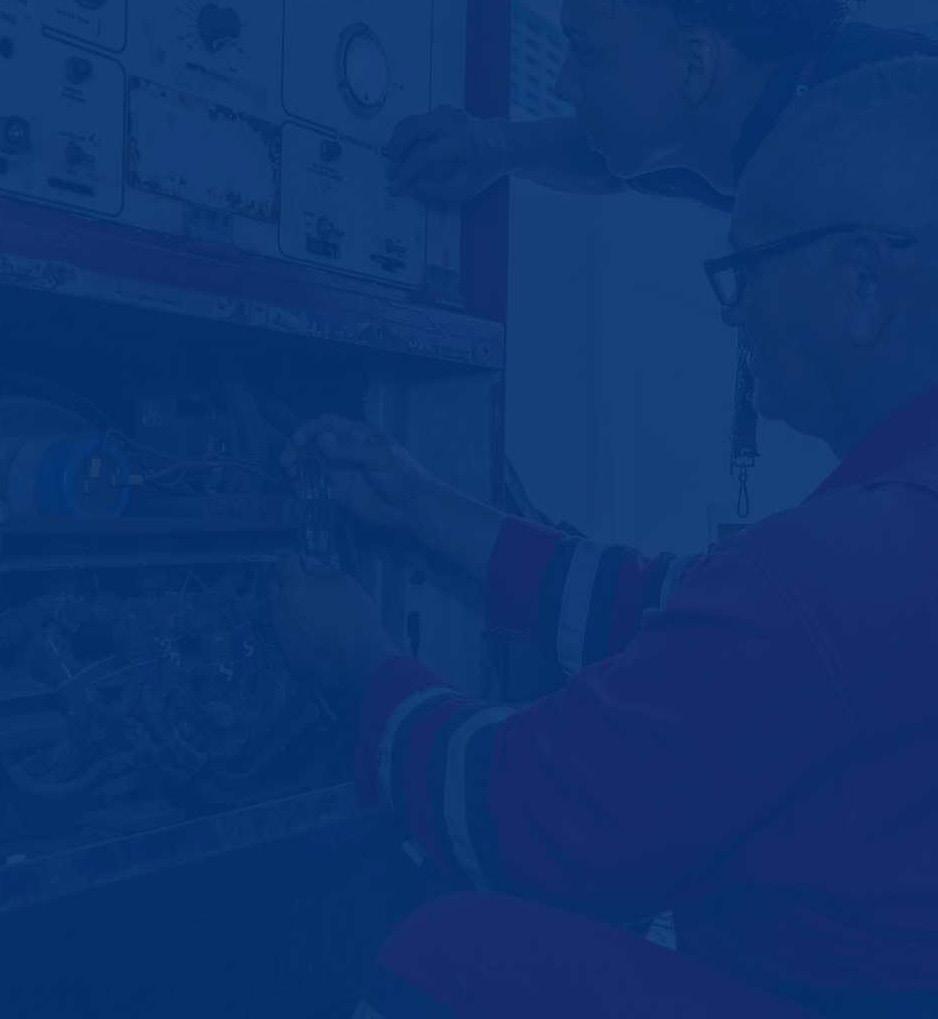







Sebastian’s Restaurant on Bonaire brings together Mediterranean-inspired flavors and Caribbean ingredients to create a dining experience that feels unique, fresh, and true to its island roots. Every dish is crafted with care using seasonal, locally-sourced ingredients, adding authenticity to every plate. Nestled right along the shoreline, the restaurant offers a picturesque oceanfront view, perfect for an unforgettable night out. With its exclusive *Pier Table*—a private table situated above the water— guests can enjoy an intimate meal as they catch a glimpse of Bonaire’s famous green flash at sunset. This stunning phenomenon adds a magical touch, creating a dining atmosphere like no other.
Sebastian’s is open every evening, offering a varied menu that has something for everyone, whether you’re looking for classic dishes or something with a modern twist. Each meal is carefully prepared by the kitchen team, led by Chef Sebastian himself, whose passion for fresh ingredients and creative cuisine shines through in every bite. Regular guests know Sebastian’s for its welcoming ambiance, which effortlessly combines elegance with island comfort. Dining here feels like being welcomed into a friend’s beachside retreat, where good food and good company are always top priority.
Every Sunday, Sebastian’s transforms for its *Famous Italian Night*, bringing a bit of Italy to Bonaire with freshly made pasta and pizza. This special night has quickly become a favorite among locals and visitors alike, offering a cozy and inviting setting to end the weekend. The menu is straightforward yet delicious, featuring handmade pastas and woodfired pizzas with toppings that range from classic Italian to creative and island-inspired options. With each dish priced at just $16, Italian Night provides an accessible yet memorable dining experience, perfect for families, friends, and couples looking for a casual evening out.
Guests can enjoy the rich flavors of marinara, basil, mozzarella, and olive oil in dishes crafted to highlight Italy’s culinary heritage, while still making room for Caribbean twists. Italian Night creates a warm, lively atmosphere where people gather to share stories, laughter, and a love for good food. It’s the kind of place where you might meet someone new at the next table or run into old friends, making it a beloved tradition on the island.
Beyond Italian Night, Sebastian’s offers special dining experiences throughout the week that keep guests excited to return. On Kitchen Night every Wednesday, Chef Sebastian presents a new 4- course surprise dinner for just $35. Each week, the chef selects fresh, seasonal ingredients to craft a menu that’s both innovative and delicious. From appetizers to dessert, every course is designed to surprise and delight, making Kitchen Night a fantastic choice for foodies and anyoane who loves to try something new.
Kitchen Night is more than just a meal—it’s an exploration of flavors, textures, and ingredients that keep guests guessing with every bite. For locals, it’s a chance to discover something different each week, and for visitors, it’s an unforgettable way to dive into the culinary creativity of the island. Chef Sebastian is



known for his ability to blend flavors from different cuisines, so guests can expect a fusion of tastes that highlight his international culinary background and love for fresh produce.
Sebastian’s Beach: A relaxing escape at Sorobon Beach
Sebastian’s Beach is located on Sorobon Beach, one of Bonaire’s most picturesque and serene spots, renowned for being one of the top 10 beaches in the world for windsurfing. The beach area is perfect for a laid-back day spent lounging by the water, enjoying lunch, and sipping cocktails. With a comfortable lounge area, beach chairs, and a well-stocked bar, it’s an ideal setting for relaxation. The vibe here is all about slowing down and soaking in the natural beauty of Lac Bay’s clear blue waters.
Located on the stunning enjoy oceanfront dining relaxation at
Fine food, great best of the
Sebastian’s Restaurant offers with Mediterranean flair and fresh and seasonal
Known for our unique ocean special Pier Table and a enjoying a drink while watching green

www.sebastiansrestaurantbonaire.com
restaurant@sebastiansrestaurantbonaire.com


Flight Duration: 30 minutes
Perfect for Groups: Multiple flights available for larger parties
and visitors alike can come together to relax, socialize, and savor the moment. Happy Hour at Sebastian’s is a chance to share stories of the week’s adventures, make new friends, and celebrate the island’s easygoing lifestyle.
stunning Sorobon Beach, dining and beachside Sebastian's.
great views, and the Caribbean!
offers an international menu and local influences, using seasonal ingredients.
ocean front dining, with a cozy bar area perfect for watching Bonaire’s exclusive flash.


Guests can order from the beach menu, which features a variety of lunch options, snacks, and refreshing frozen cocktails. From fresh salads to light bites, the menu has plenty to satisfy those who want a taste of the island without leaving their lounge chair. The atmosphere is casual and inviting, making it easy for guests to kick back and enjoy the sun with friends, family, or solo. Sebastian’s Beach brings together good food, drinks, and music, creating an unforgettable Caribbean beach experience.
Sunday happy hour: The perfect end to the weekend
To wrap up the weekend, Sebastian’s Beach Bar hosts Happy Hour every Sunday from 4:00 to 6:00 pm. This weekly event is the ideal time to unwind with a cold drink, enjoy good company, and watch the sun slowly set over the island. It’s a laid-back affair where locals
www.sebastiansrestaurantbonaire.com
restaurant@sebastiansrestaurantbonaire.com
facebook.com/SebastiansSorobon www.facebook.com/sebastiansbonaire
The relaxed music, chilled cocktails, and welcoming ambiance make Sunday Happy Hour a favorite part of many people’s weekend. Whether you’re a regular or a first-time guest, the vibe is always warm and friendly, with guests often lingering to enjoy just one more drink as the sun dips below the horizon. An Island experience like no other Sebastian’s Beach & Restaurant is more than just a dining destination—it’s a place where guests can experience the spirit of Bonaire through food, community, and breathtaking views. From romantic oceanfront dinners and lively Italian Nights to the unforgettable Fly & Dine experience and casual beachside relaxation, Sebastian’s offers something for everyone. Each visit to Sebastian’s brings a new memory, whether you’re savoring a freshly made pasta, toasting with a glass of wine, or simply soaking up the sun with sand between your toes. Whether you’re looking for a romantic night out, a family dinner, or an adventure that combines sightseeing with fine dining, Sebastian’s captures the essence of Bonaire with every detail.
Sebastian’s Fly & Dine Experience: A One-ofa-Kind adventure
For those looking to add a touch of adventure to their evening, Sebastian’s Fly & Dine experience is a must. This unique package combines a scenic 30-minute flight over Bonaire with a threecourse oceanfront dinner back at the restaurant, creating a one-of-akind way to see the island from both the sky and the sea. The flight offers panoramic views of Bonaire’s stunning landscapes, from the bright turquoise waters and salt pans to the island’s rolling hills and unique cityscape. It’s a breathtaking introduction to Bonaire, perfect for visitors and anyone who wants to see the island from a whole new perspective.
After landing, guests are brought to Sebastian’s, where a reserved table awaits along with a threecourse dinner from the à la carte menu and a bottle of wine to share. The evening unfolds with fine dining, enjoyed against the backdrop of a beautiful ocean sunset. For larger groups, multiple flights can be arranged so that everyone can participate in the Fly & Dine experience. Additional transportation can be organized, including pickup from your accommodation to the airport, a ride to the restaurant, and return transport at the end of the evening, making the experience as seamless as possible.
The Fly & Dine package is an unforgettable way to experience Bonaire, ideal for special occasions, romantic evenings, or simply a night out with friends that’s unlike anything else on the island.
www.sebastiansrestaurantbonaire.com



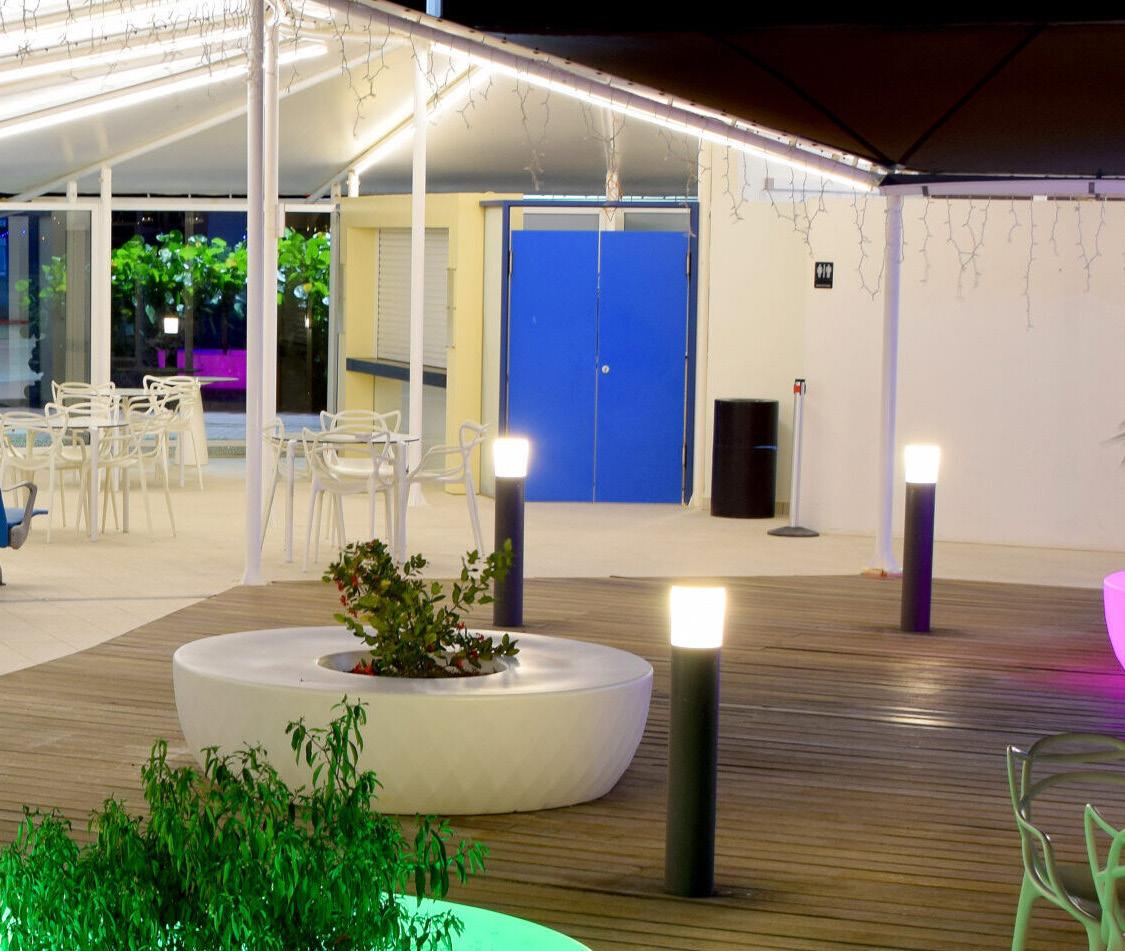
Amongst its many projects to improve visitor experience, the airport has recently added a terrace to its departure lounge waiting area.
“Not only is this an expansion of our waiting area, it also allows guests to enjoy the last of the Bonaire sunshine before their flight,” added Giordano.
In addition, it has enlarged the capacity of its baggage reclaim belt and waiting area to handle increased traffic, and added a canopy to its border control facility to keep customers cool whilst they wait.
“As well as this, we will upgrade our
security filter meaning we can pass through more passengers in a friendly, quality, efficient, and high-standard way,” Giordano commented, “We have developed our safety and security protocols to meet the highest standards, and despite the size of our airport compared to bigger players, we are fully compliant internationally,” he continued.
Furthermore, working in conjunction with the Dutch Government, BIA is currently undergoing a multi-million pound overhaul to its airfield ground lighting system, which is due to complete at the end of 2024.


Due to the increased traffic to Bonaire, the airport has recently announced groundbreaking developments in the operators facilitating flights to the airport.
As well as American Airlines, United Airlines, and Delta, Canada’s WestJet has recently joined the roster of operators flying into Bonaire, offering a stable, seasonal schedule to Toronto.
And, from November 2024, JetBlue will launch a bi-weekly, year round operation from JFK, New York.
“The partnership with JetBlue is an exciting step forward for Bonaire, as it removes a blank spot from our growing network,” shared Marten.
Considered one of the largest intercontinental airport in the Netherlands, as well as the fourth largest in the Dutch
Caribbean, Flamingo Airport is one of the biggest contributors to the Bonaire economy, as well as one of the larger employers on the island.
“We have created partnerships with both local and international businesses in aviation to create knowledge sharing and learning opportunities on the island,” said Giordano, “it is crucial that we can develop an experienced, educated, and passionate local workforce to ensure the success of the airport into the future”.
Both Maarten and Giordano reflected that Bonaire is on a journey to a successful, sustainable future. But what is crucial to both BIA and the island is not numbers on the balance sheet (although undeniably important), but the preservation of the identity and uniqueness of one of the world’s remaining hidden gems.
www.bonaireinternationalairport.com

GRENADA AIRPORTS
AUTHORITY
PROJECT DIRECTED BY: GARY SMITH
ARTICLE WRITTEN BY: LAURA WATLING


Maurice Bishop International Airport (MBIA), Grenada’s primary gateway to the world, is in the midst of a significant transformation as part of an ambitious 30-year master plan. This comprehensive redevelopment, led by the Grenada Airports Authority (GAA) under the guidance of its Chief Executive Officer (CEO), Edgar Stephen, aims to revolutionise the airport’s infrastructure, operations, and services to support Grenada’s long-term economic growth, tourism, and trade. The plan is set to make MBIA one of the most advanced and efficient airports in the Caribbean region.
Edgar Stephen, who assumed the role of CEO in December 2023, brings with him valuable experience from the aviation industry. Before joining the GAA, Stephen managed the Hewanorra International Airport in St. Lucia, where he oversaw a successful $200 million redevelopment project. His tenure in St. Lucia included navigating the aviation sector through the COVID-19 pandemic, which caused a significant downturn in travel and tourism across the Caribbean. Now, he’s leveraging that expertise to modernise Grenada’s airport infrastructure, ensuring

MBIA is equipped to handle future challenges and opportunities.
Stephen emphasises that the MBIA redevelopment is guided by both a “fiveyear strategic plan” and an overarching “30-year master plan.” Together, these initiatives aim to position Grenada’s airport as a state-of-the-art facility capable of meeting the demands of modern aviation, trade, and tourism. Since taking on the role, one of his primary goals has been to revamp the airport’s management systems and human resources to align with global best practices, stating, “We’re still expected to run as any other airport would while these changes are taking place.”
The 30-year master plan is designed to work in tandem with a comprehensive business plan, creating a blueprint that addresses both the physical infrastructure
of the airport and its operational and financial sustainability. This dual approach aims to modernise the airport while also fostering economic growth for Grenada as a whole. Funded in part by the World Bank, the master plan includes several critical initiatives that focus on enhancing infrastructure, safety, security, and sustainability.
One of the core components of the plan is the introduction of advanced technology and infrastructure upgrades. The airport will see the installation of new surveillance systems to improve security, night landing facilities to increase accessibility, and the implementation of a sea defence strategy. Given its coastal location, MBIA is vulnerable to flooding and extreme weather events, especially during hurricane season. The sea defence measures are expected to mitigate flood risks, reducing long-term costs associated with flood damage, and ensuring the airport remains operational even in adverse weather conditions.
Agostini Insurance Brokers Grenada Ltd. was established in July 2006, born from the union of two companies with a shared vision.
We are a subsidiary of Geo. F. Huggins & Co (G’da) Ltd., the largest locally owned conglomerate in Grenada, with over a century of service. Additionally, we are an affiliate of Agostini Insurance Brokers Ltd., the largest Insurance Broker in the Southern Caribbean, amassing over 74 years of expertise in Insurance Broking and Risk Management, with offices in Trinidad, Tobago, and St. Lucia.
With decades of industry experience, Agostini Insurance Brokers (Grenada) Ltd., brings together a distinguished team of Business, Insurance, Risk, and Legal experts. We are committed to delivering the highest standards of professional and ethical service to our clients. Our strong relationships with

With over 70 years of experience, our mission is to be the leading Insurance Broker and Risk Management Consultant in our chosen markets, by providing Total Quality Service to our customers, satisfying their needs and expectations with absolute integrity.
leading International Brokers and Insurance Companies allow us to offer customized insurance solutions across a wide range of specialty areas.
We serve a broad spectrum of industries throughout Grenada, Carriacou, and Petite Martinique, including sectors such as Automotive, Agriculture, Construction, Education, Electronics, Finance, Food Manufacturing, Hospitality, Housing Developments, Shipping, Property, Professionals, Shopping Plazas, Supermarkets, Steel and Metal Companies, Transport, Marine, Travel and more.
Our commitment to integrity, credibility, and our proactive problem-solving approach has earned us the trust of some of the largest corporate clients on the island.
Our target market encompasses individuals and businesses seeking expert consultation in Insurance Broking and Risk Management.

Welcome to McIntyre Bros. Ltd., Your reliable partner.
Founded in 1895, McIntyre Bros. Ltd. is committed to ensuring your journey are both seamless and unforgettable.
We offer a range of services including Airport Transfers, Rentals, Excursions, Yamaha Boat Engines, and New Vehicles from Honda, Mazda, and Ford.
Discover the unique experience with McIntyre Bros. Ltd. /Caribbean Horizons Tours and Services: Explore Grenada in style.




Why select McIntyre Bros. Ltd./Caribbean Horizons?
Extensive Options - Enjoy excursions that allow you to experience Grenada through the eyes of knowledgeable guides.
Exceptional Service - Our dedicated team is focused on delivering the highest level of customer satisfaction.
Convenience - We meet you at your location, including the airport.
www.caribbeanhorizons.com/mcintyre-bros-ltd



Telephone: (473) 444-3944 / 444-1555
E-mail: info@mcintyrebros.gd info@caribbeanhorizons.com www.caribbeanhorizons.com

Founded by the late Errol J. Maitland, Maitland Motor Sales & Rentals is a family-owned business here on the beautiful island of Grenada.
With two strategic and convenient locations, our team is committed to serving customers with a hearty smile.
Located in Grand Anse – opposite the Radisson Beach Resort & on Maurice Bishop International Airport, Maitland rentals does not only rent vehicles but is also an importer
of foreign used vehicles from Japan.
While on vacation in Grenada you can choose one of our quality auto rentals and discover lovely beaches, waterfalls and historical sites at your own pace.
We offer 24 hours rental vehicles that are reliable and with unlimited mileage.
Airport and Cruise ship pick up and drop off can be offered at no additional cost within the St. George area.


This comprehensive redevelopment aims to support not just the airport but also the nation’s broader economic landscape. The GAA envisions that the master plan will promote greater trade, tourism, and investment in Grenada, with the potential to impact neighbouring Caribbean countries positively. As part of the business plan, the airport will expand its duty-free shopping areas, enhance revenue streams, and establish partnerships with more airlines, including major carriers such as American Airlines, Air Canada, British Airways, and Virgin Atlantic. These partnerships will help to increase connectivity with North America and Europe, making Grenada more accessible to international travellers and trade partners.
Sustainability is at the core of the airport’s redevelopment strategy, reflecting




Grenada's commitment to environmentally responsible growth. One of the standout features of the plan is the transition to renewable energy sources. The airport is set to implement a solar-powered lighting system, reducing energy costs and carbon emissions while demonstrating a commitment to sustainability. This move aligns with global efforts to minimise the environmental impact of aviation operations and will help lower the airport's operational costs over time, making it more economically viable.
Additionally, the GAA has launched a “Single-Use Plastic (SUP) Reduction Initiative,” which aims to significantly reduce the number of plastic bottles and other single-use plastics ending up in landfills. This initiative is a collaborative effort involving local governments and the International Civil Aviation Organisation, positioning MBIA as a leader in environmental stewardship in the









Caribbean. The goal is to create a more ecofriendly airport experience for passengers while contributing to broader sustainability efforts across the island.
One of the most critical components of the redevelopment is the significant investment in improving the airport’s infrastructure, which includes resurfacing the runway, upgrading the lighting systems to solar energy, and installing passenger boarding bridges. These upgrades are expected to enhance the safety and efficiency of airport operations, reducing delays and improving the overall experience for travellers.
In addition to passenger services, the redevelopment project places a strong emphasis on improving cargo handling facilities. Grenada’s economy relies heavily on exports, particularly in sectors such



as seafood, agriculture, and spices. The new cargo facilities will feature modern equipment and technology designed to handle a greater variety of goods, including perishable and frozen items. Stephen has highlighted the importance of a “modern cargo facility that responds to the market and the goods we export.”
By improving cargo handling capabilities, the airport will be able to facilitate more trade agreements, not only enhancing Grenada’s export potential but also stimulating job creation and economic growth.
The expansion of the cargo facilities will also contribute to the airport’s goal of becoming a regional trade hub. With improved capacity and efficiency, MBIA is well-positioned to handle a greater volume of goods, benefiting businesses in Grenada and the wider Caribbean region.


The airport currently employs approximately 300 individuals, but this number is expected to rise significantly, with projections indicating over 500 jobs will be created once the redevelopment is complete. These new roles will span various areas, including construction, duty-free retail, general airport operations, and staffing for airline partners. This job growth represents a significant boost to the local economy, providing employment opportunities for Grenadians and helping to reduce unemployment on the island.
The anticipated increase in tourism, facilitated by the enhanced airport infrastructure, will have a ripple effect on other sectors of the economy, such as hospitality, retail, and transportation. The redevelopment is projected to increase tourism by attracting more flights and visitors to Grenada, contributing to the

growth of the island’s tourism industry, which saw a remarkable 51% increase in tourist arrivals in 2023 compared to the previous year.
One of the main goals of the master plan is to enhance the overall passenger experience. The addition of passenger boarding bridges, extended canopy coverage, and modernised facilities will make travelling through MBIA more comfortable and efficient. While the airport faces challenges with outdated infrastructure and space constraints, the GAA is confident that these improvements will significantly elevate the quality of service for travellers.
The expanded runway capacity is another key feature of the redevelopment, allowing more planes to stay overnight and



accommodating an increased number of flights. This enhancement will support the airport’s objective of attracting more private jets and luxury travellers, further promoting Grenada as a destination for high-end tourism. Additionally, it will enable more frequent and diverse flight schedules, improving connectivity with key markets in North America, Europe, and the wider Caribbean region.
The 30-year master plan for Maurice Bishop International Airport represents a bold vision for the future of Grenada’s aviation industry. By focusing on sustainability, infrastructure modernisation, improved cargo handling, and enhanced passenger experiences, the GAA is setting the stage for long-term growth and success. This transformation will not only benefit the airport but also have a far-reaching impact on Grenada’s economy, tourism, and trade, making it a pivotal driver of development in the Caribbean region.
As the airport evolves, it will play a crucial role in connecting Grenada to the world, fostering economic opportunities, and showcasing the island’s unique offerings to international travellers. With Edgar Stephen’s experienced leadership and the GAA’s comprehensive planning, Maurice Bishop International Airport is on track to become a leading example of how strategic investment and visionary planning can revolutionise a nation’s aviation sector.
www.gaa.gd

How Myntra’s focus on customers, early adoption of innovation, and commitment to sustainability is helping it grow


MYNTRA
PROJECT
DIRECTED BY: UTKARSH SHARMA
ARTICLE WRITTEN BY: LAURA WATLING
How does a business supplying offerings from over 9700 international and home grown brands bring delight to fashion-forward customers across the world’s seventhlargest country?
Vice President of Sourcing at Myntra, Shirish Srivastava, explains to Business Enquirer, how Myntra’s cutting-edge technology and business ethos have supported the brand in answering that question.
A fashion graduate of India’s National Institute of Fashion Designing, Shirish has experienced supply chain management across a plethora of major fashion brands, including Esprit, adidas and Puma.
The year 2023, saw Myntra add 75 mn new users to the platform and witness 60 mn monthly active users, a number that continues to grow. At this humongous scale of operation, Myntra has become a go-to destination for the fashion forward shoppers in the country for their needs in the lifestyle space, particularly for fashion, beauty and home.
While Myntra started as a platform to cater to the needs of fashion for millennials and beyond, understanding the growing prominence of the Gen-Z cohort in the country, Myntra was quick to launch a dedicated destination to address the unique fashion needs of this emerging cohort in India’s vast shopper base. An immersive fashion experience for the Gen-Z, FWD by Myntra is delivering a differentiated app-in-app experience while bringing global trends closer to them. FWD provides easy discovery of an unparalleled assortment of 75,000+ styles from across the globe, while catering to both men and women. FWD also simplifies the journey of Trend-Spottingto-Shopping like never-before, further adding to the shopping journey of its 16 million+ Gen Z consumers.
So while FWD caters to Gen-Z Fashion needs the rest of the app, still support the core fashion and beauty propositions, while further adding adjacent categories like home and gifting/
The business has always been an early adopter of technology, constantly innovating to solve customer challenges in the space of fashion and now beauty
AI and machine learning have both proven a successful tool for the world of e-commerce, and has supported Myntra in making guided purchasing decisions and improving efficiency.
“Myntra is one of India’s leading fashion, beauty and lifestyle e-commerce destinations. As a tech-first company, we have beautifully integrated tech at every touch point. A seamless UI/ UX driving ease of discoverability, size & fit recommendations and virtual try on enabling informed decision making and hassle free post shopping experience with features like M-Express and Style Exchange. Leveraging the power of technology helps us provide a differentiated shopping experience to customers, ” Shirish added.

About Myntra
Myntra is one of India's leading platforms for fashion, beauty and lifestyle brands and in m-commerce play. An integral part of the Flipkart Group, Myntra brings together technology and fashion to create the best experience in the fashion and lifestyle space in India. Myntra platform offers a wide range of over 9700+ leading fashion and lifestyle brands in the country such as H&M, Levi’s, U.S. Polo Assn., Tommy Hilfiger, Louis Philippe, HUDA Beauty, MANGO, Forever 21, Marks & Spencer, W, Biba, Nike, Puma, Crocs, M.A.C, and Fossil and many more. Myntra services over ~19,000 pin codes across the country.
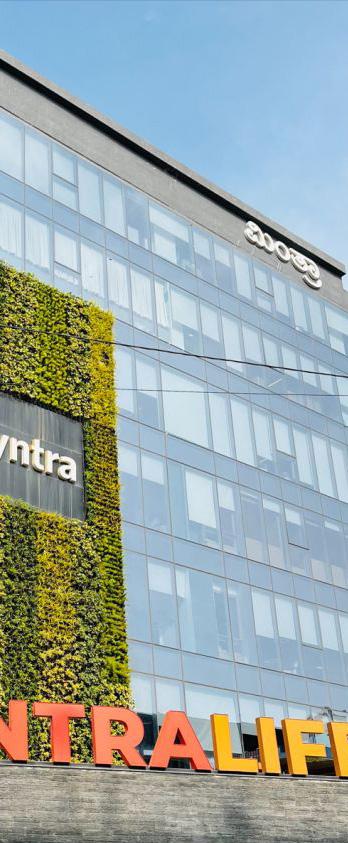
Enhancing Experience through Innovation AI is also having a positive impact on Myntra’s customer experience, with Shirish explaining that implementation of generative AI to its platform is one of the many reasons customers choose to shop through Myntra.
“Our platform offers suggestions to consumers based on their preferences, so should they pick a pair of trousers, our AI integration will suggest ways to style them and what to accessorise them with. We have found customers love the experience,” explained Shirish.
‘My Stylist’ is Myntra’s AI-powered endto-end automated personal style guide, which offers the most relevant outfit recommendations for a complete look. Myntra's in-house artificial intelligence (AI) technology, machine learning (ML) models and computer vision algorithms, along with expertise of subject matter experts in curation and styling, power My Stylist's 'Fashion Object Detection', 'Image Search', and 'Outfit Recommendations' features.
Another Gen AI-led feature is Myntra’s MyFashionGPT, arguably among the world's first features to have leveraged ChatGPT for fashion at this scale; it allows users to search for outfits seamlessly using natural language, revolutionising the shopping experience. Users can ask for outfit queries based on popular events like IPL, travel locations like beaches, celebrity looks from popular movies, occasions like weddings and festivals and many more and get suggestions realtime. In a diverse country like India, giving customers the option to search for products in their native language helps in building deeper salience with existing customers as well as tapping into a new set, specifically from non-metro and tier 3+ cities. Myntra’s Vernacular Search feature enables its customers to search for their favourite products on the platform in 10 native languages other than Hindi.
Myntra is a pioneer in the space of deploying Omnichannel technology at scale. This has not only resulted in improved shopper experience, but has






DBS Lifestyle is a one-of-a-kind turnkey company servicing Fashion & Home clients and brands globally since 2010. Our Trend & Design Studio and Sourcing business verticals collectively provide an end-to-end solution from design to manufacturing & warehouse delivery.
Pangram Brands, our newest venture, specialises in creating global private brands that address specific customer needs and are retailed through both offline and online channels.
As a company, we offer a unique combination of B2B, B2C & D2C services, all under one umbrella. www.dbslifestyle.com
Since its establishment in 2010, DBS Lifestyle India Private Limited (a member of the PDS Group) has emerged as a trailblazer in the fashion and home service industry, transforming the landscape with its innovative approach to design, product development and sourcing. With a commitment to excellence and a fully integrated business model, DBS Lifestyle is reshaping how brands bring products to market.
Founded by Divya Suri and Bhawnish Suri, DBS Lifestyle operates on a comprehensive business model that encompasses design, brands, and sourcing. This strategic structure enables the company to provide end-to-end solutions for its clients with a lighttouch model. Having served over 200 fashion and 150 home customers globally, DBS Lifestyle's extensive reach and experience has positioned it as a leader in the industry.
The company’s offerings are categorised into three verticals: design, brands, and sourcing The design vertical specialises in cutting-edge fashion solutions, delivering original intellectual property and proprietary designs. This division has solidified DBS's status as a significant player in the global design market. Additionally, the brands vertical introduced Gia Como Italy, their in-house home lifestyle brand which retails across the GCC region through the Landmark Group, further showcasing the company’s


capability to appeal to global consumers. The sourcing vertical, supported by five global offices, integrates DBS Lifestyle's design and sourcing capabilities, positioning it as a comprehensive service provider .
DBS Lifestyle’s ability to swiftly respond to market trends is one of its core strengths. In the fast-paced world of fashion, staying ahead of trends is essential. DBS achieves this through robust design and sourcing capabilities, enabling quick turnaround for clients. By controlling the entire value chain—from design to delivery— DBS ensures both efficiency and cost-effectiveness.
In an industry that requires rapid adaptation, DBS Lifestyle excels by leveraging datadriven insights. Innovative technologies, such as 3D design and real-time AI-enabled data analytics, expedite the sampling and production process. Teams of specialists in each vertical provide expert attention tailored to individual client needs, ensuring highquality output.
A significant highlight of DBS Lifestyle's success is its strategic partnership with e-commerce giant Myntra Since 2014, DBS has provided a comprehensive range of services, from design to product
development, ultimately becoming a key full-service partner in Myntra’s fast fashion strategy. This partnership has evolved over the years, reflecting DBS Lifestyle's ability to grow with its clients and adapt to the industry's dynamic landscape.
The collaboration with Myntra embodies DBS Lifestyle’s core values: agility, innovation, and strategic alignment with its partners. As the fast fashion sector continues to evolve, DBS's capability to pivot quickly while maintaining high standards sets it apart in this competitive market.
In today’s business environment, sustainability is more than just a trend; it’s a vital consideration for forwardthinking companies. DBS Lifestyle recognises this need and has integrated sustainable practices within its operations. The company collaborates with factories certified for Global Recycled Standard (GRS) and Oeko-Tex, actively promoting the use of sustainable materials.
Moreover, DBS Lifestyle is committed to upholding the highest ethical standards across its manufacturing processes. This includes minimising waste and ensuring all operations have the lowest possible
environmental impact. These sustainability initiatives not only meet global standards but also align with the expectations of key partners like Myntra, positioning DBS ahead in a market increasingly focused on responsible business choices.
DBS Lifestyle's forward-thinking approach to business, built on innovation, efficiency, and strategic partnerships, has established an agile supply chain supported by worldclass design capabilities. With turnaround time as quick as 21 days, DBS Lifestyle continues to thrive alongside partners like Myntra, effectively navigating the fast-paced e-commerce landscape.
As DBS Lifestyle expands its global presence, its commitment to sustainability and adaptability to emerging trends will remain central to its business model. This innovative approach ensures that DBS will not only meet the demands of today’s fast fashion market but will also set new benchmarks for the future of ethical and sustainable fashion.
In summary, DBS Lifestyle has solidified its position as a pioneer in India’s fashion industry, consistently delivering innovative, sustainable, and scalable solutions to customers worldwide.



also enabled brands to feature their entire collection, those available in their stores also, on Myntra. The concept is today giving impetus to start a new chapter in the industry in terms of collaboration, that is rewarding to the customer and the brands.
“Omnichannel has a multifold objective for us”, says Shirish. “First, it offers the largest width of selection under one roof to our customers. If it's available anywhere in the country, it's available to our customers. Second, it creates non-linear growth opportunities for our partners by creating more opportunities.” he adds.
In what Shirish described as a complete solution, he highlighted that customers also shop with Myntra because of its convenience, range of products, and ease of exchange or return.
Myntra has also become popular with consumers because of its sustainability credentials. Even in the younger years of the business we have been committed to taking steps towards sustainability.”.
With that in mind, in 2021, Myntra pioneered the introduction of sustainable alternatives for packaging and delivery.


These include replacing poly pouches with recycled paper bags, bubble wraps with carton waste shredded material, plastic adhesive tapes with paper tapes, polybags used for attaching customer invoices with a recycled Kraft paper pouch and RFIDtagged multi-use polyester bags. A result of the commitment of multiple in-house teams and their methodical approach, involving several months of finding suitable material and process exploration, and collaboration with several ecosystem stakeholders.
In this effort, Myntra has aimed to make these solutions both cost-effective and scalable. The initiative also included multiple educational webinars and training sessions to support vendor partners in adopting the new paper packaging system nationwide.
Myntra took another significant step by collaborating with Canopy, a non-profit environmental organisation, to prevent deforestation by increasing the use of recycled and alternative materials in its packaging.
In addition, Myntra became the first e-commerce vertical in the country to have joined forces with the Better Cotton Initiative, a sustainability program focused on promoting sustainable cotton farming practices. Myntra also has two of its five fulfilment centres powered by solar energy.
“Considering the scale, we can make a humongous impact.” adds Srivastava Shirish highlighted that digitisation is powering the penetration in India, and with Myntra already serving over 98% of the serviceable pin codes of the country, it will be interesting to see how the next phase of fashion evolution is going to take place
“With the convenience which Myntra offers, I think it's going to become a preferred choice for even more consumers across India, while strengthening its position as a gateway of choice for brands looking at tapping into the promising India market” closed Shirish.
www.myntra.com
In 2024, Norfolk County Council has demonstrated an ongoing commitment to fostering local growth, job creation, environmental sustainability, and community empowerment. Facing challenges in achieving funding autonomy, the council has worked diligently to secure innovative investment avenues and collaborations. With pivotal projects and plans on the horizon, Norfolk County Council is striving to transform the county’s economic landscape while addressing residents’ needs.



NORFOLK COUNTY COUNCIL PROJECT DIRECTED BY: JAMIE WAITE


A key development for Norfolk this year was the planned, though subsequently halted, £600 million Devolution Deal. This agreement, initially arranged with the UK Government, promised to transfer significant funds and powers to the county, earmarked for major infrastructure and local economic investments over a 30year period. This initiative sought to grant Norfolk County Council greater autonomy in prioritising and managing economic resources tailored to local needs, covering essential areas like transportation, housing, and job creation. This deal held substantial promise, including a £20 million per year allocation to drive local infrastructure, transit systems, and more affordable housing projects. Despite the government’s recent decision to pause the initiative, Norfolk County Council remains hopeful for future negotiations and is pressing for alternative arrangements that would allow Norfolk to access similar benefits.
Parallel to economic ambitions, Norfolk County Council has also invested in forward-thinking environmental programs. The Norfolk Climate Change Partnership has championed the Net Zero Communities project, supported by a £300,000 Innovate UK grant. This initiative, set to run through 2025, involves collaboration with seven pilot communities, including Norwich and Great Yarmouth, to facilitate carbon reduction at a local level. Focused on practical solutions to decarbonisation, the project helps residents and businesses implement energy-efficient practices, renewable energy adoption, and greener transportation. The ultimate goal is not only to reduce Norfolk’s carbon footprint but also to enhance the quality of life and foster sustainable local economies.
Additionally, the council’s emphasis on green transportation is evident in its recent strides toward expanding electric


From its base in Norwich, Norse provides services to local authorities across the UK by forming joint venture partnerships. These range from architecture and property consultancy to waste collection, street cleansing, grounds maintenance and facilities management.
The group is one of Norfolk’s largest employers and has a daily impact on the lives of local residents, but most of its revenues come from outside the county; Norse operates as far away as Devon, Wales, the south coast, Staffordshire and Yorkshire.
Celebrating 36 years in business, Norse Group is the UK’s largest local authority trading company (LATCO), wholly owned by Norfolk County Council. The group is one of Norfolk’s largest employers and provides services across the county, including school meals, transport, highways maintenance, building repairs and property services.
The group also runs the county council’s care homes through its company Norse Care.
Although, as its ownership implies, a proportion of its work is carried out in Norfolk, Norse supports local authorities and businesses across the UK, employing 9,000 people nationwide; by bringing money into Norfolk, the company makes a significant contribution to the local economy.
Amongst Norse’s local operations, its company NEWS – a joint venture with Norfolk’s city and district councils – processes their recyclable waste in its state-ofthe-art recycling facility on the outskirts of Norwich.
“Our range of services and the experience of our team gives partner organisations the confidence to concentrate on their core operations,” said Justin Galliford, CEO. “We take a
forward-thinking and qualitydriven approach to our services, ensuring that we deliver the right solutions for our clients’ needs, whilst supporting the communities in which we operate.”
Now, Norse wants to use the foundation of its pioneering partnership model to develop its offering, with a strong focus on governance and social value. The business has made a commitment to achieve net zero by 2050. However, at the front of its mind is what additional value it can bring to its customers and partners. “We are currently exploring a groupwide suite of measures for net zero, which our local authority clients would benefit from,” explained Justin, “this includes implementing alternative, sustainable fuel for our fleet of two thousand vehicles”.
Norse supports the county council’s drive for social value, tackling the likes of food poverty by supporting
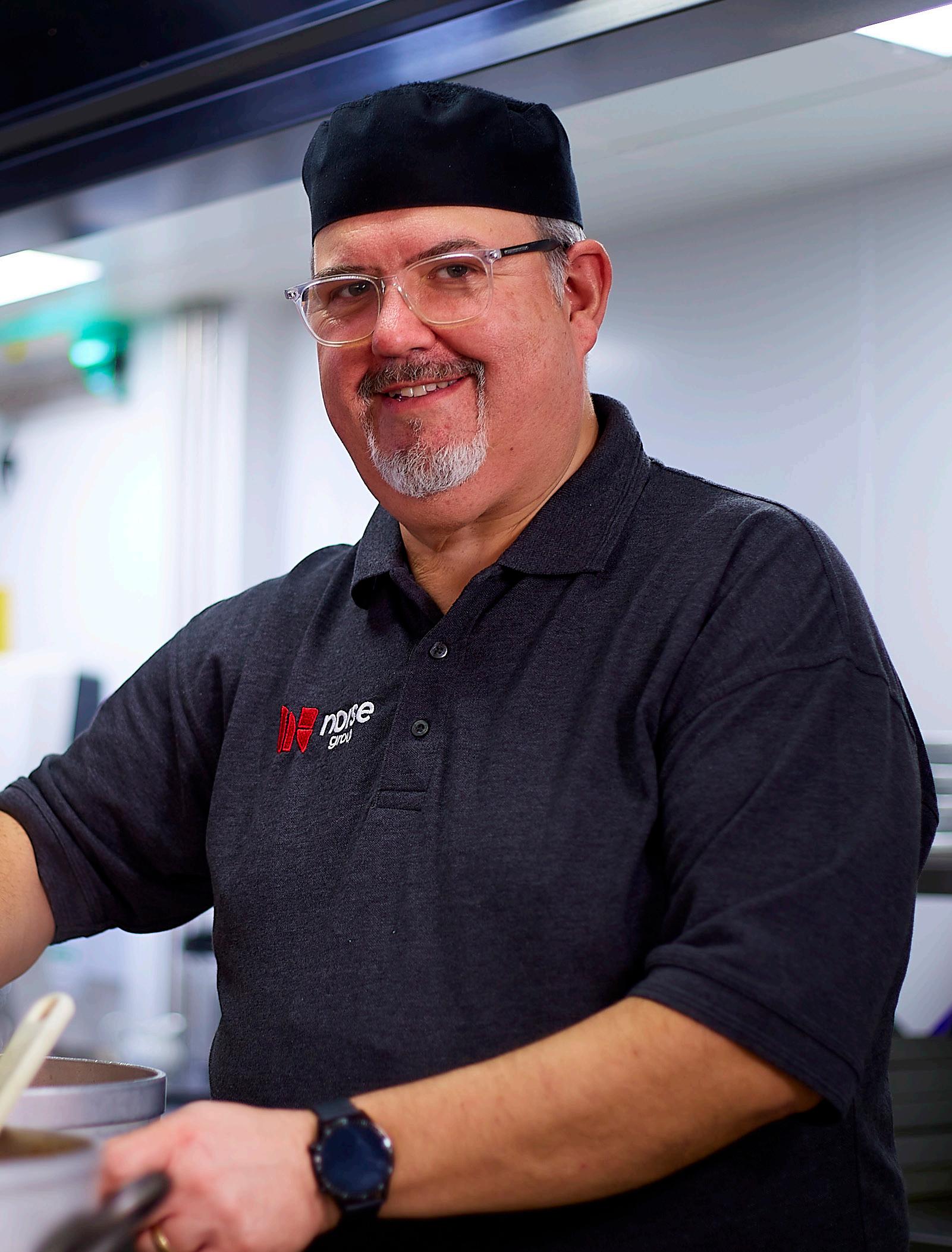
initiatives such as the Norfolk Community Foundation; this helps provide food hubs across Norfolk to combat food insecurity and make sure no one in the county goes hungry. Justin Galliford also represents the business on the prison Employment Advisory Board, providing skills training and helping prisoners find employment upon release – thus reducing their likelihood to reoffend: “If we can support prison leavers into employment they are 50% less likely to reoffend, which in turn saves the £50,000 it costs each year to house each prisoner.
As a local company with a national presence, Norse Group is proud to support Norfolk County Council and the county’s residents, and looks forward to increasing its contribution as its growth continues in the future.
norsegroup.co.uk

vehicle infrastructure and promoting more eco-friendly transit options. These projects align with Norfolk’s broader climate objectives and underscore the council’s commitment to pioneering green living within the county.
Norfolk County Council is highly attuned to the needs of local businesses and the importance of a skilled workforce. As part of its economic development strategy, the council has introduced training initiatives and resources for entrepreneurs, aiming to help local businesses adapt to market changes, especially post-Brexit. This focus on skill-building and employment growth addresses both economic and social resilience, fostering a competitive workforce ready to tackle emerging industries.
Another priority has been promoting community engagement in decisionmaking. The council has invited residents to contribute input on a range of projects, from housing developments to climate strategies, creating a culture of inclusivity that aims to reflect public interests in policy decisions.
Affordable housing remains a top priority for Norfolk County Council. Recognising the growing housing demand, the council has advocated for strategic urban planning and new affordable housing projects across the county. This year, efforts included advancing affordable housing projects in Norwich and expanding housing in both urban and rural areas. While the paused devolution deal held significant promise for accelerating these developments, Norfolk remains committed to identifying alternative funding to continue addressing housing affordability.
The council’s infrastructure work extends to road and digital connectivity, both essential for business expansion and the well-being of Norfolk’s residents. Improvements to transportation links, including expansions in bus and cycling lanes, have been part of the council’s commitment to making Norfolk more accessible while reducing carbon emissions. Future projects are expected to bring Norfolk’s infrastructure further in line with modern demands.
Norfolk County Council continues to prioritise community well-being, offering robust support across health, social care, and youth services. The council’s investment in mental health services and family support programs has provided valuable resources to residents across age groups. Additionally, the council has emphasised the importance of libraries and digital learning hubs, investing in resources that foster education and digital literacy for all ages.
As Norfolk County Council heads into 2025, it continues to advocate for both economic and environmental progress, demonstrating resilience in response to the challenges facing the county. Its initiatives in business support, housing, green infrastructure, and community involvement highlight its dedication to sustainable development and improving residents’ lives. With ongoing negotiations for funding and a strong focus on locally tailored policies, Norfolk County Council is poised to remain a driving force in the region’s growth and sustainability.
For more details on the council’s projects and ongoing efforts, visit the Norfolk County Council website, www.norfolk.gov.uk


The world renowned vegan restaurant closed two months ago to completely refurbish the Grade II listed heritage building on Lexington Street, Soho.
The new design of the iconic Mildreds townhouse has created more space as well as a second floor 18-seater private dining area and event space, ideal for Christmas parties.
The new look Mildreds now offers dining over three floors with individually designed spaces with clashing colours, more plants and layers of artwork collated over the last 35 years. The exterior facia of the building is now deep blue with orange window frames and Mildreds signage.
The bar has been extended and redesigned with coral paint and red gloss trims featuring a modern renaissance painted mural. There’s additional booth seating with each section of the restaurant decorated with different wallpaper and colour themes to enhance the stylish new interiors.
The new Mildreds opens on Wednesday October 16 and there will be a complimentary cocktail for all those who dine at the Soho restaurant until October 31.
World renowned Mildreds Soho reopens after refurbishment serving the most innovative plant based cuisine in London.



Mildreds CEO, Sam Anstey, said: “We’ve been trailblazers of plant based food for decades and our home has always been Soho, the heart of London’s most vibrant district. I am extremely proud to re-open Mildreds Soho and after the refresh of our elegant grade II listed townhouse site I look forward to inviting back our loyal customers as well as new guests alike.
“The Lexington Street venue has been lovingly re-imagined with bold colours, a gallery of special paintings and we’ve also created a separate floor for private events, ideal for Christmas get togethers and intimate gatherings. Welcome back to the new Mildreds!”
Mildreds first opened in Soho in 1988 with the ambition to serve delicious vegetarian food to the discerning inhabitants and nighthawks of the area that was anything but bland or boring.
Since then the restaurant has become known around the world as one of the most influential trailblazers of vegetarian and vegan cuisine and the beating heart of plant based food innovation in the UK.
Over the years Mildreds has also been frequented by personalities including Sir Paul McCartney, David Walliams, Anne Hathaway, Lara Ulrich and Pamela Anderson and many more.
Fast forward over 35 years and Mildreds has expanded beyond its Soho base with restaurants in Covent Garden, Camden Town, Kings Cross, Dalston and Victoria, each offering fantastic hospitality as well as an adventurous menu of globally inspired food and drink.
Mildreds is known as one of London’s most popular dining experiences because they never play it safe. Thanks to their in-house development team, led by Creative Director Sarah Wasserman, Mildreds pride themselves on pioneering new flavours and bold ideas into every dish to treat their guests to the most exciting, cutting edge vegan food in the world.
Founded in 1988, Mildreds has been serving internationally inspired plantbased food in London for over 35 years. Over the years, the brand’s fundamentals have remained unchanged; to celebrate and pioneer plant-based food using the freshest, most vibrant and flavoursome ingredients. Coupled with superb service in a fun, inclusive and spirited space, their seven London-based restaurants, each with unique style and personality, have become top destinations within neighbourhoods where all are welcome to celebrate their adventurous plant-based food.

Sarah Wasserman, Mildreds Head of Food Development, said: “ Mildred’s food philosophy has always been about showcasing the freshest, most vibrant and flavoursome ingredients available in plant-based cooking. Whether you follow a vegan diet or not my team and I have always focussed on creating amazing, innovative food that just happens to be great-tasting vegan food.
“I’ve always been inspired by international cuisine and have used many different influences when designing new menus to include diverse collections of fresh and vibrant ingredients. We are proud to be a mecca for food lovers and our recently launched autumn menu pioneers seasonal and adventurous flavours as well as bringing back guest favourites like the popular mushroom and ale pie.”
Sarah added: “Mildreds has inspired generations of vegans and non vegans to try delicious, flavoursome food and this
Mildreds Victoria, 128 Wilton Road, London, SW1V 1JZ - opening 7th May
Mildreds Soho, 45 Lexington Street, London, W1F 9AN
Mildreds Camden, 9 Jamestown Rd, London, NW1 7BW
Mildreds King’s Cross, 200 Pentonville Rd, London, N1 9JP
Mildreds Dalston, 1 Dalston Square, London, E8 3GU
Mildreds Covent Garden, 79 St Martin's Lane, WC2N 4AA
Mallow Borough Market, 1 Cathedral St, London SE1 9DE
Mallow Canary Wharf, 12 Park Drive London E14 9ZW
tradition will continue at our much loved Soho home.”
Mildreds’ ethos is simple: fantastic food and drink for everyone, that just happens to be vegan, with an all-day and night menu that changes with the seasons.
Mildreds, which is already taking bookings for Christmas parties and events, is about to launch its autumn new menu featuring dishes including Mushroom Ale Pot Pie which has come back due to popular demand.
For those who want to try to prepare Mildreds cuisine at home there’s a series of best selling cookbooks with plans to grow even more because the team want to ensure that no matter where you are, there is always incredible vegan food near you.
www.mildreds.co.uk
